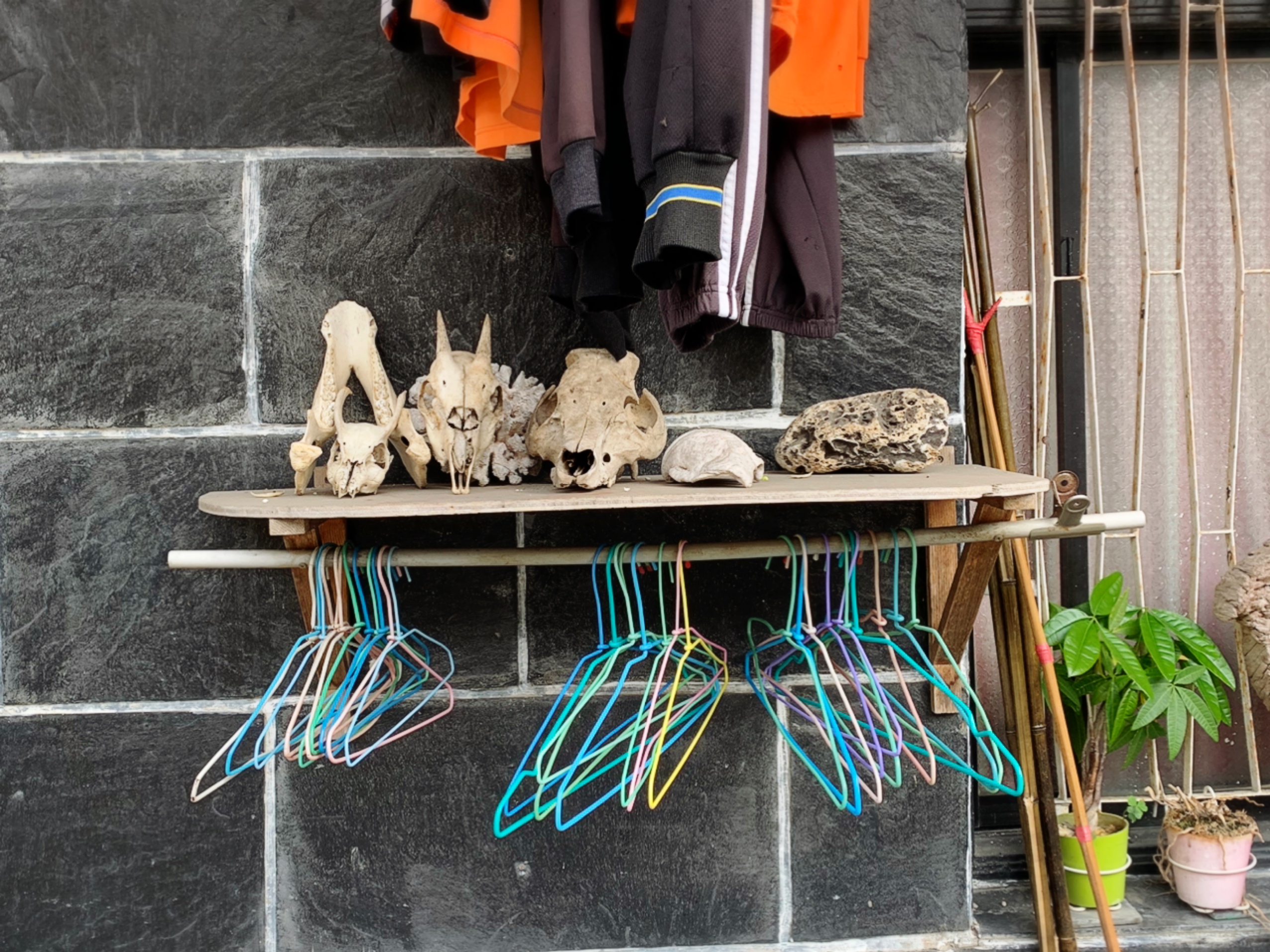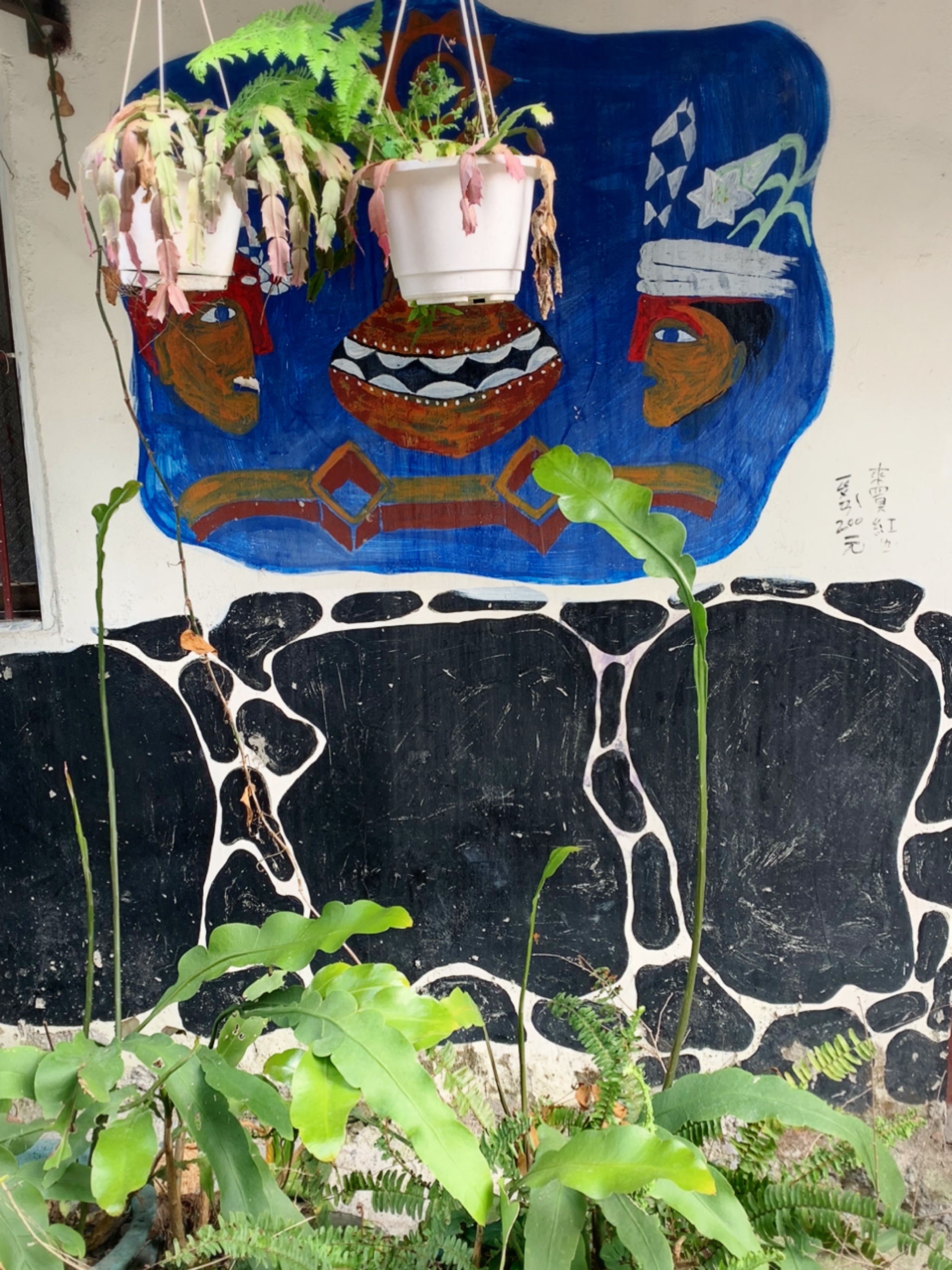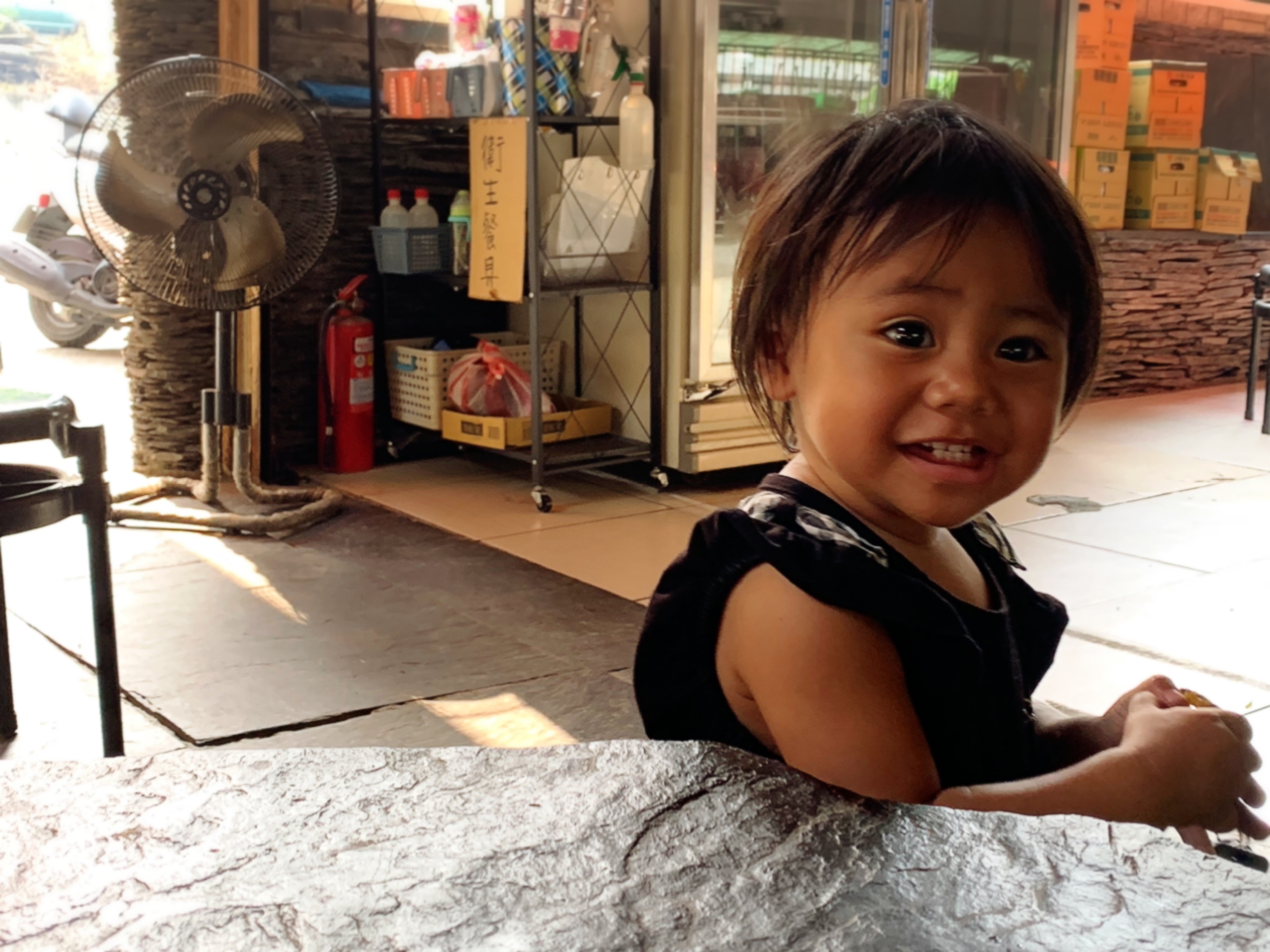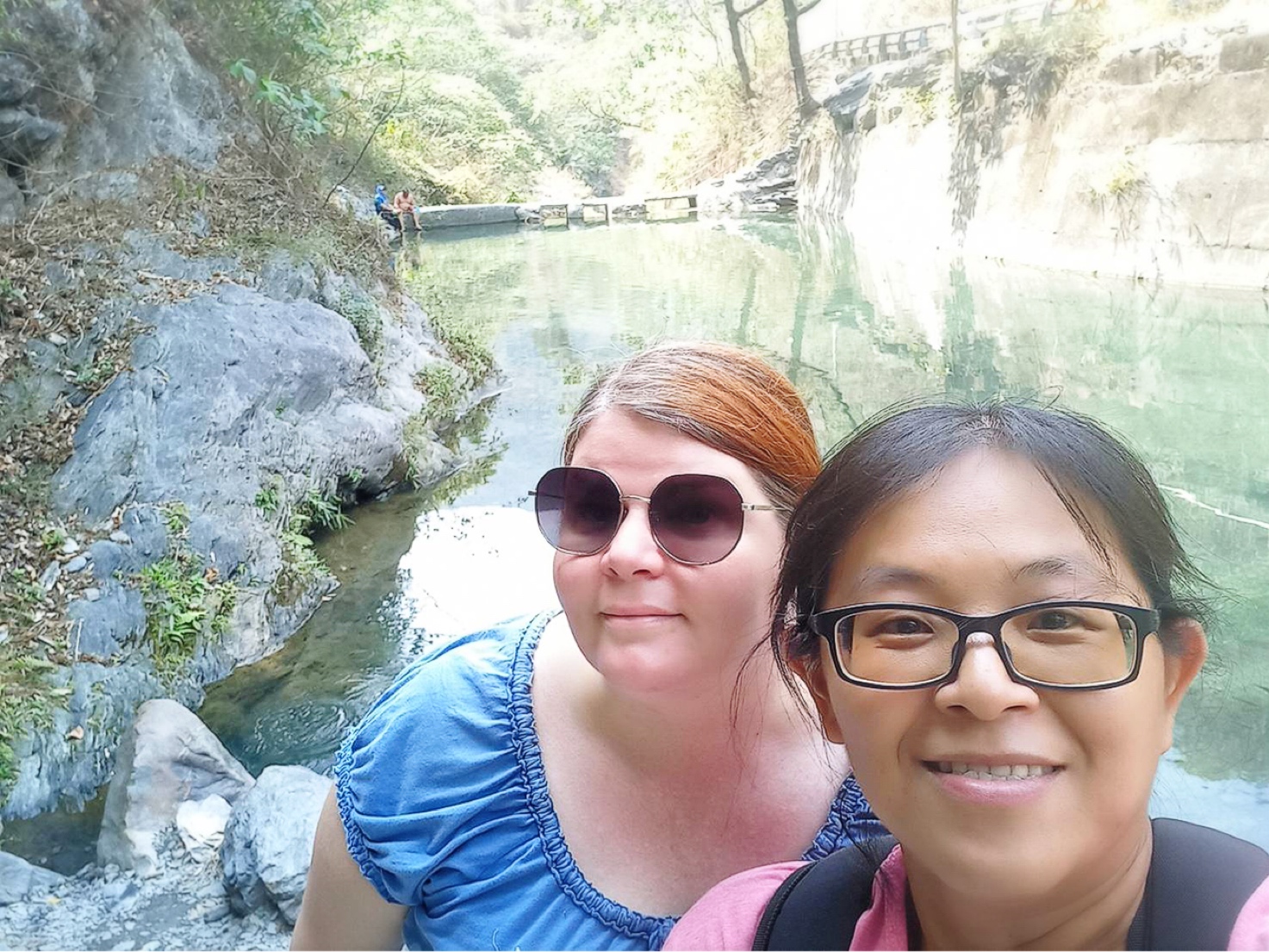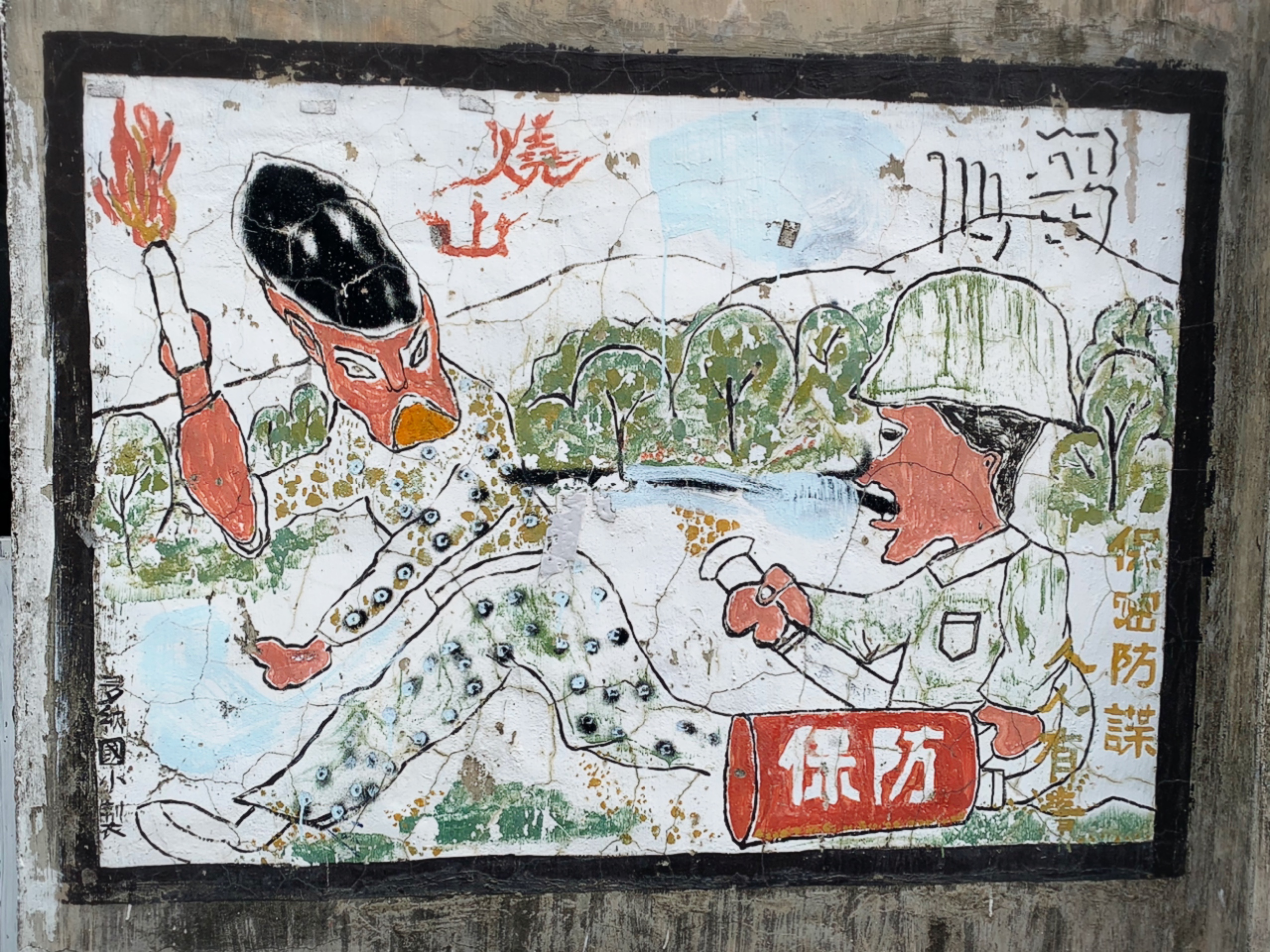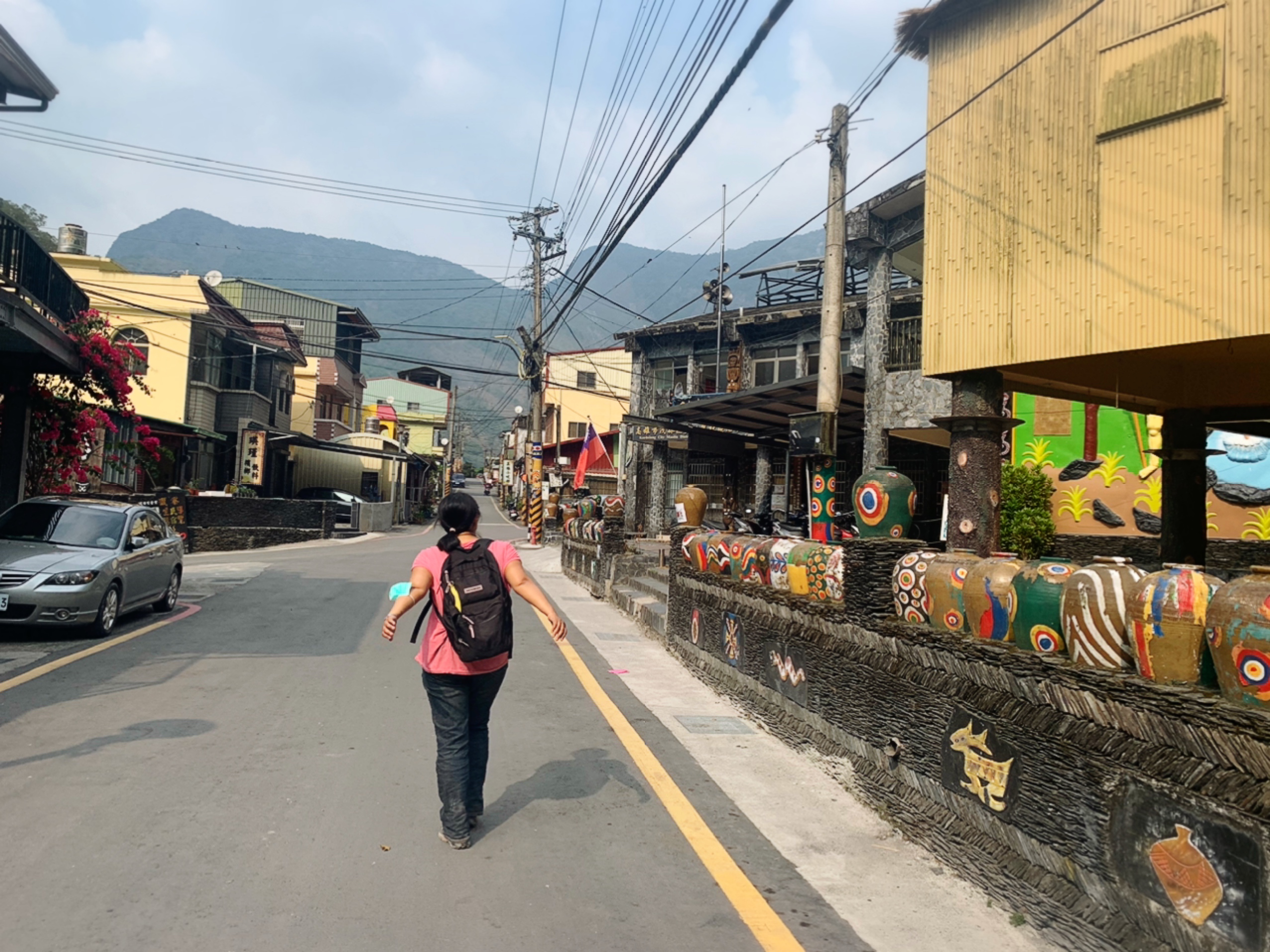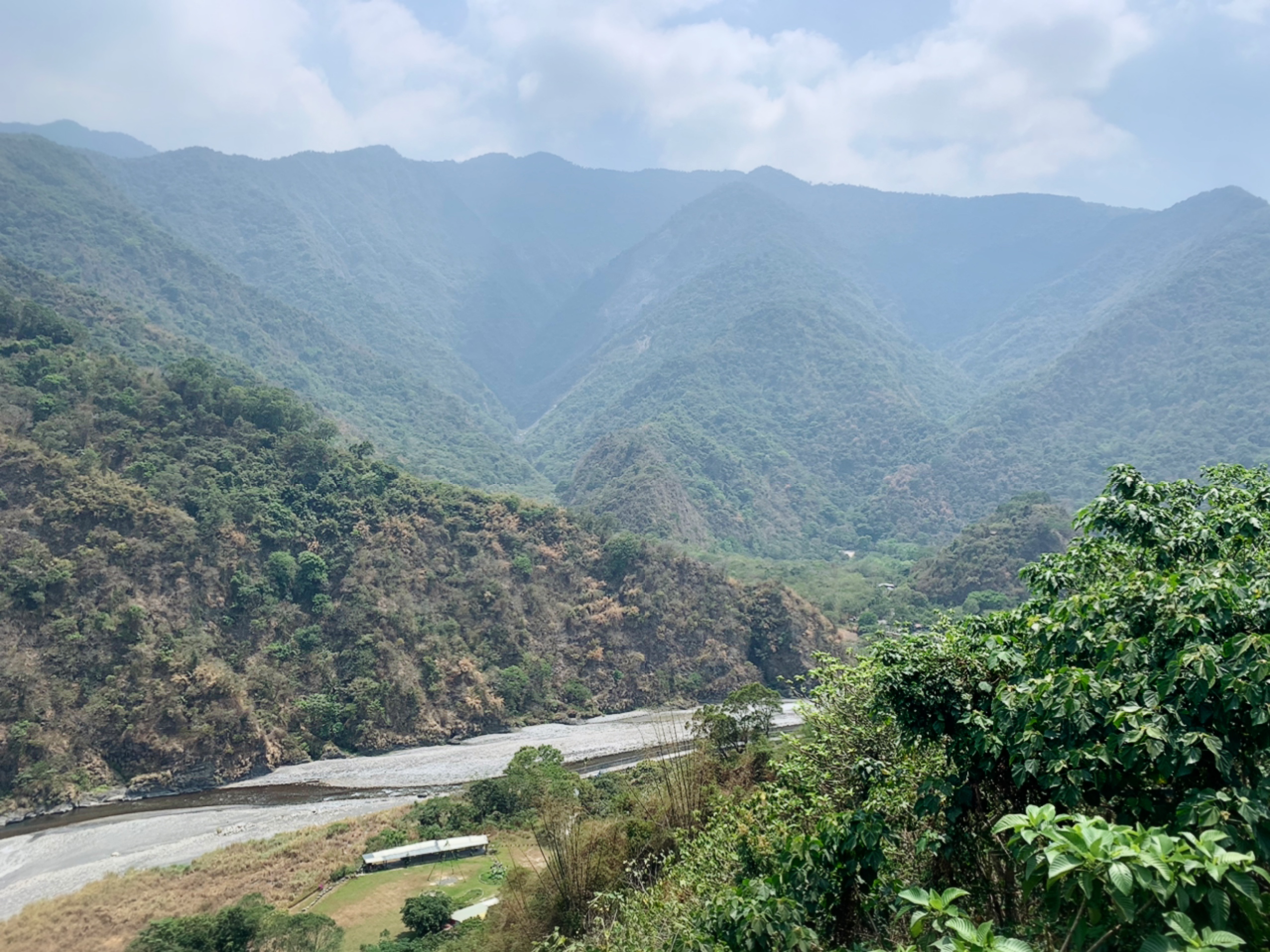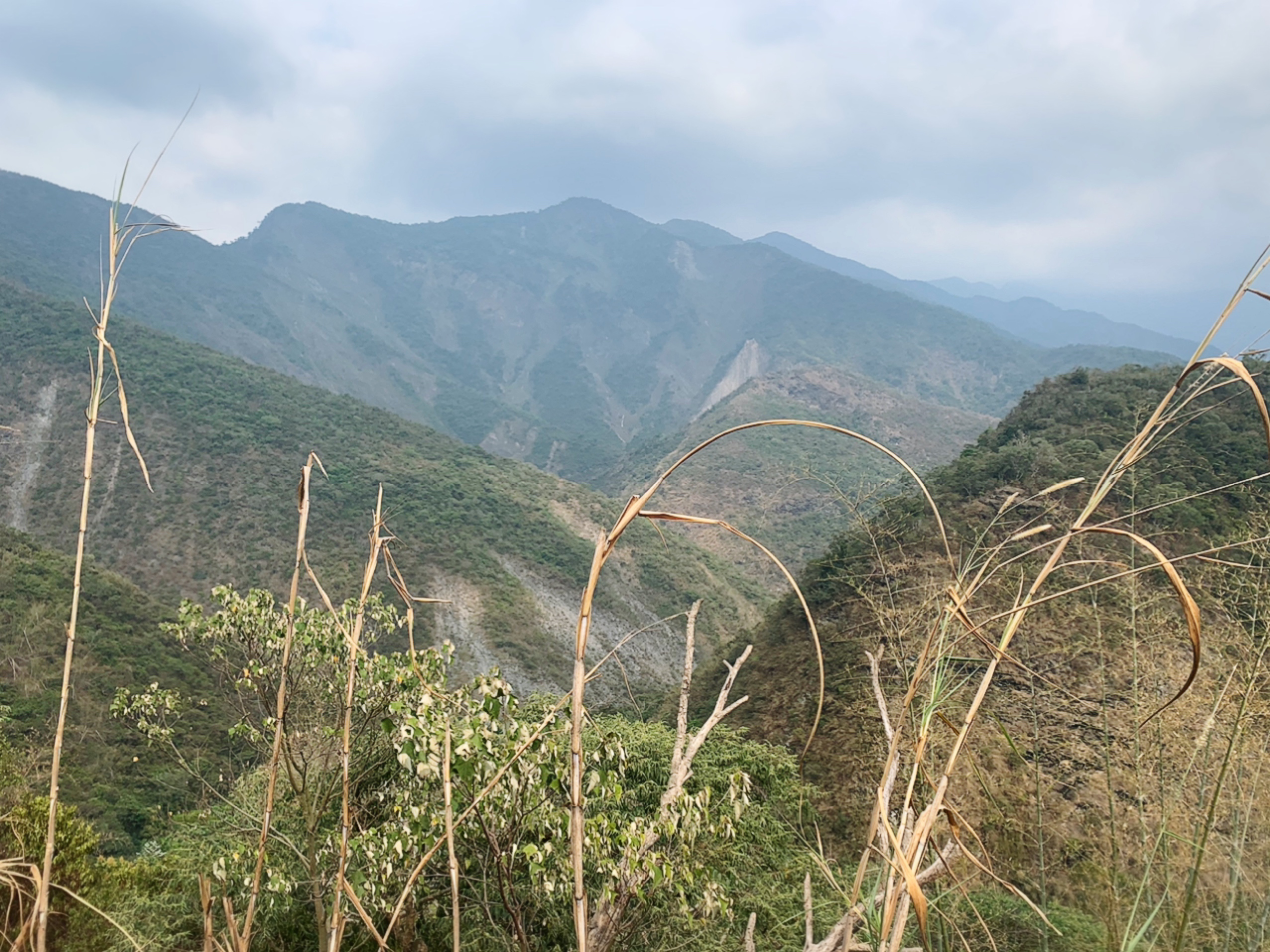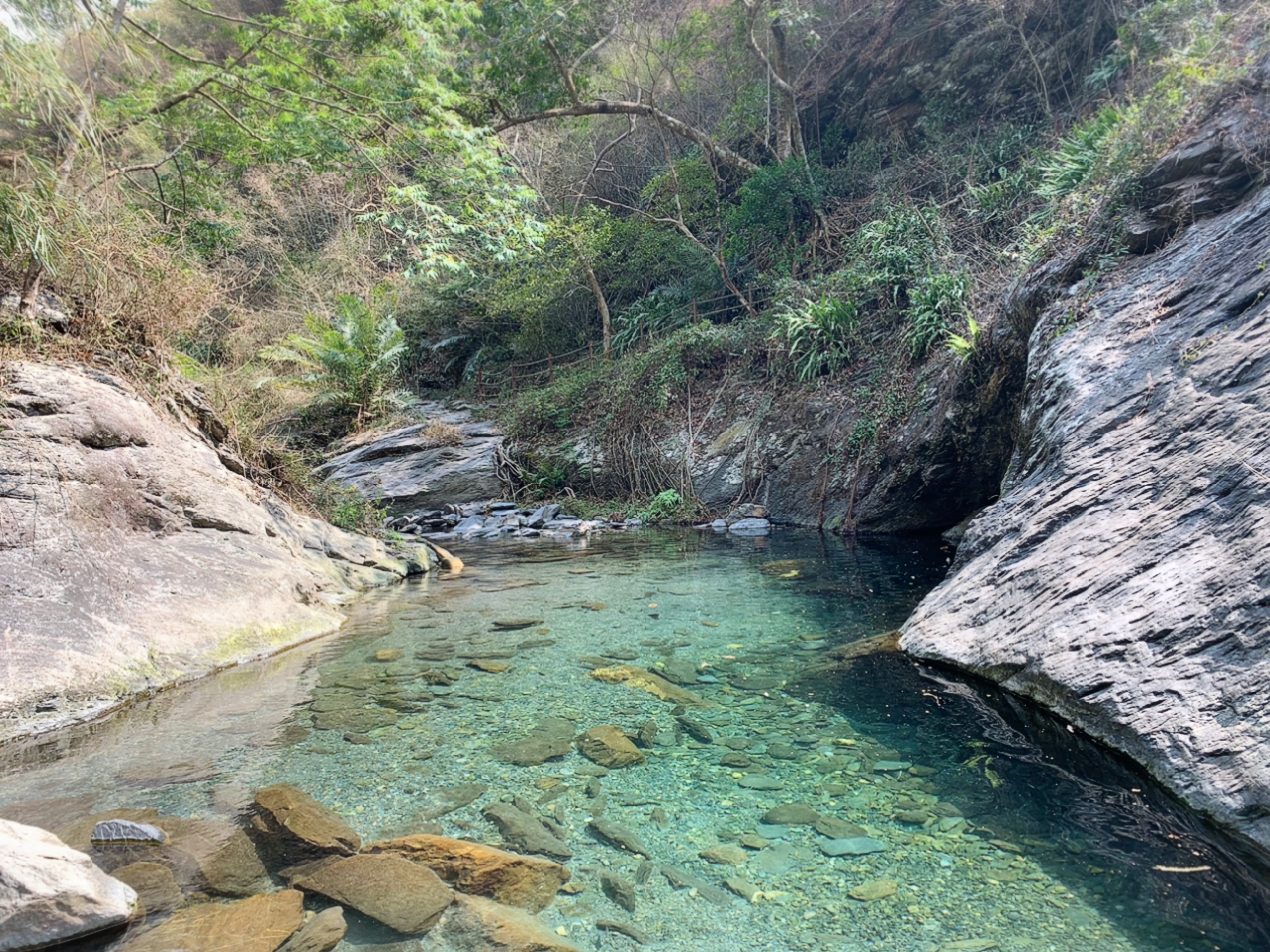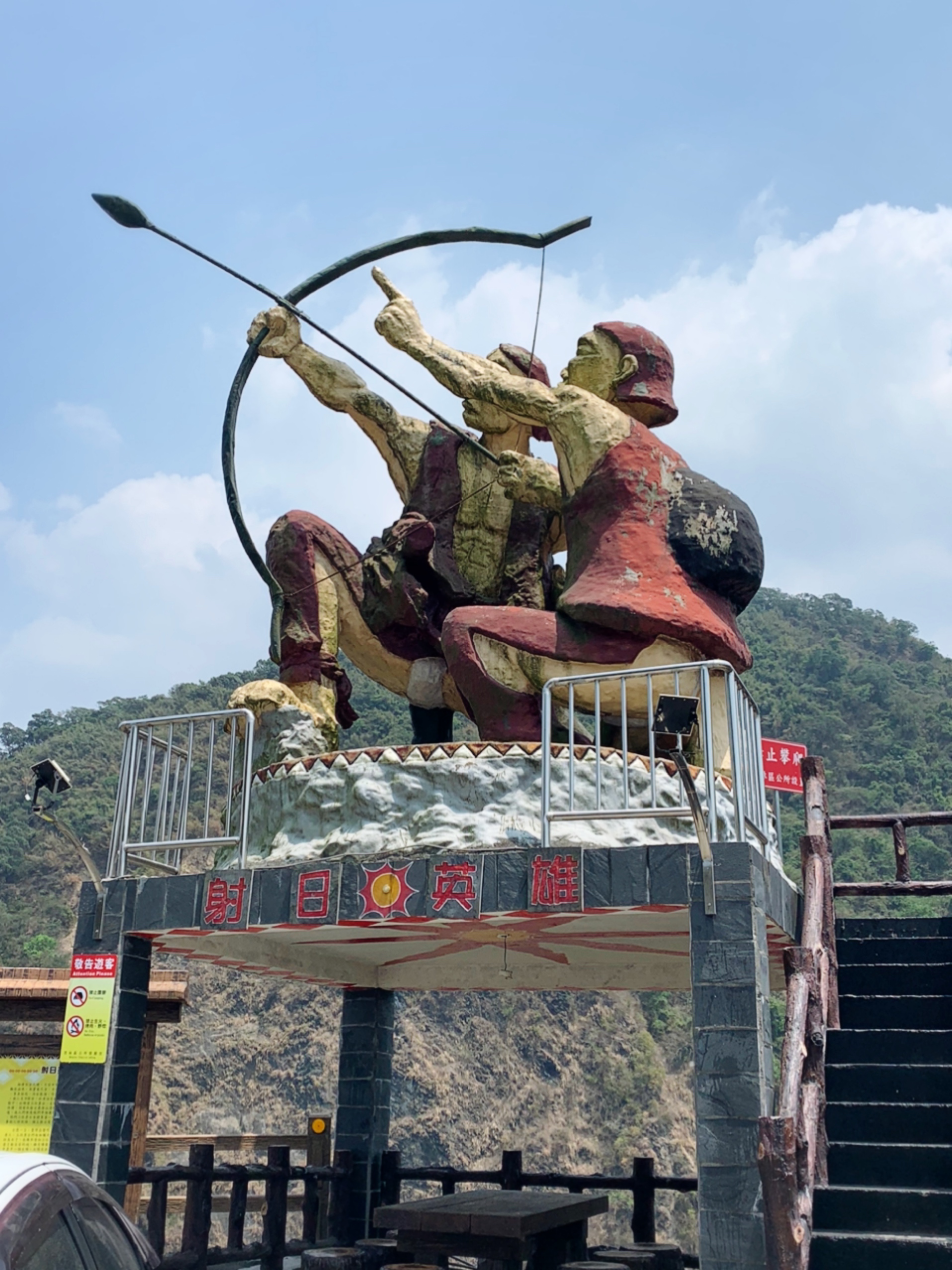The Huang family compound in Dashe
Before the coronavirus outbreak in Taiwan, work took me to southern Taiwan quite often. Since I have lots of friends down south, this has given me the opportunity to head in some unexpected directions.
On my last trip, I met up with a friend who lives in Dashe (大社), a compact town north of Kaohsiung City. Like a lot of less commonly explored towns, Dashe offers a fair amount of historic architecture that you'll mostly have to yourself, and perhaps a few locals. A lot of this architecture consists of beautiful old farmhouses, which tend to still be privately owned (and occupied). That's great, although there's a downside: it can be difficult to actually get a look.
The nearest MRT station is Metropolitan Park, although it's surprisingly possible to take a bus there from HSR Zuoying Station. The R60B heads in that direction, but there are other options: Google Maps can show you how without much problem.
I was lucky to have car access, however. Our plan for the day was to drive up to Maolin 茂林 and Duona 多納, and take advantage of the dry, sunny weather to hike up to the Lovers' Waterfall at Maolin and the gorge and suspension bridge at Duona. The area is mainly Rukai Indigenous, and there's also good food to be had up there. Duona's mountain views and traditional stacked slate houses draw tourists, which means stone slab barbecue, coffeeshops, millet wine, fig jelly (愛玉 -- the area is famous for it) and maqaw (馬告, a citrusy-flavored peppercorn-like seasoning used in Indigenous cuisine).
Well, we did make it to Duona, but we ended up not doing anything else on our itinerary except barbecue and coffee, so this isn't a blog post about a trip to the mountains. However, the best possible overview of the area can be found in Richard Saunders' Taiwan 101 travel guide.
How did we get so far off track? It's not a very interesting story, but I will tell you at the end. Our first diversion was my friend's hometown itself. It turns out that Dashe is far more interesting than it seems! The town is absolutely bursting with old houses in various states of repair. Some are fairly unadorned three-sided farmhouses (三合院) that have survived into the 21st century, but some are truly noteworthy.
We spent a morning driving around looking at these old houses before heading for the hills, and still didn't manage to visit every one.
Let's start with the Wu family (巫家), whose ancestral hall and family home are along Minsheng Road 民生路. The ancestral hall is open to the public during the day and is located at #2, Lane 43 (the lane is really just a concrete lot). It's on Google Maps as the Taisha Old House Witch House (大社巫厝古宅) but there's no "witch" involved; that's just a weird translation of the Wu surname, which uses a less common character.
Much of this hall was torn down and replaced with newer buildings, but the central three courtyards remain. According to local blogs, the original hall was so massive that it was called the "thousand gates", because it...had a lot of gates. Apparently the 'servants' would cry every night at the thought of shutting all of them, and each one had a distinctive latch. 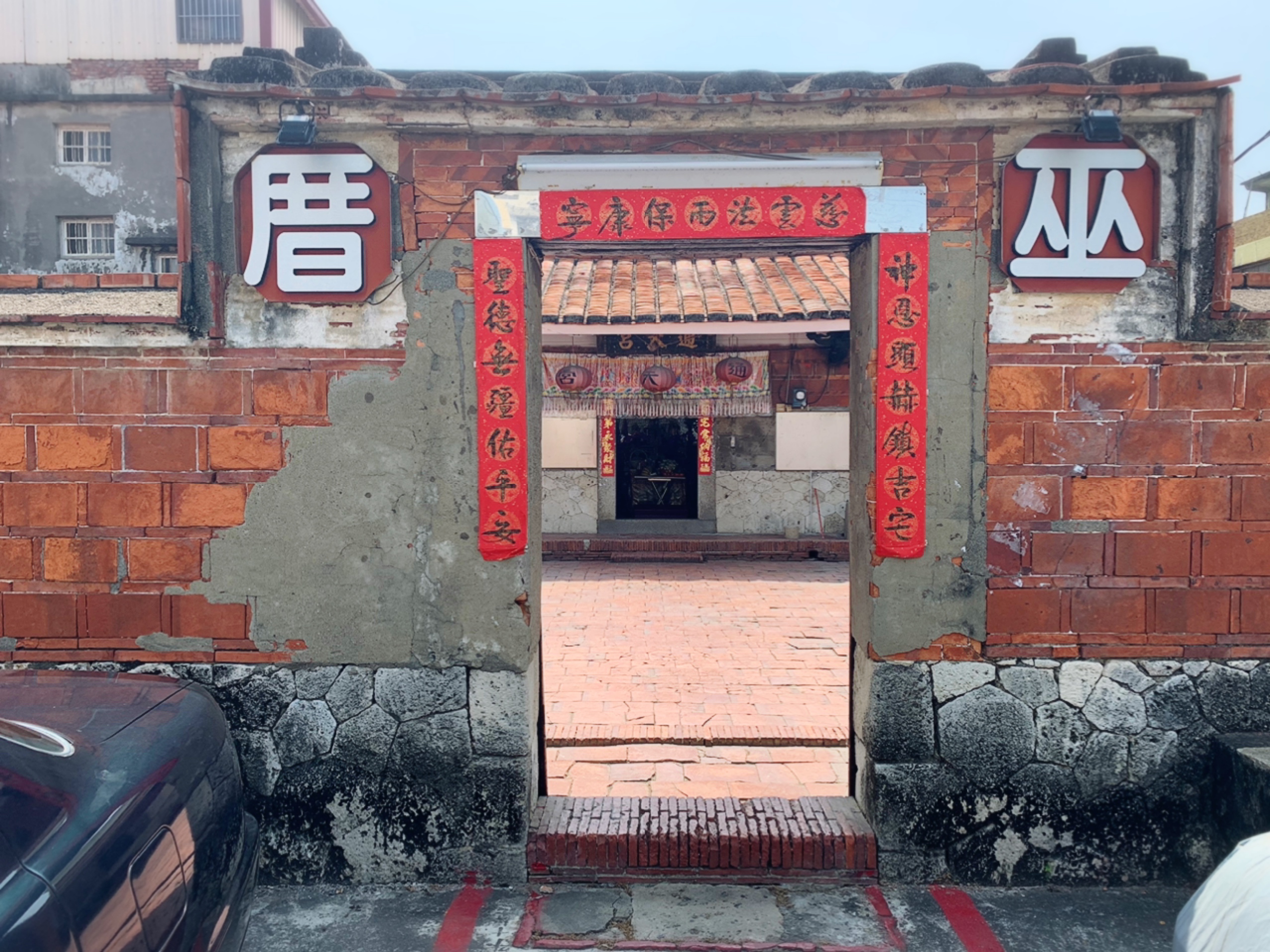
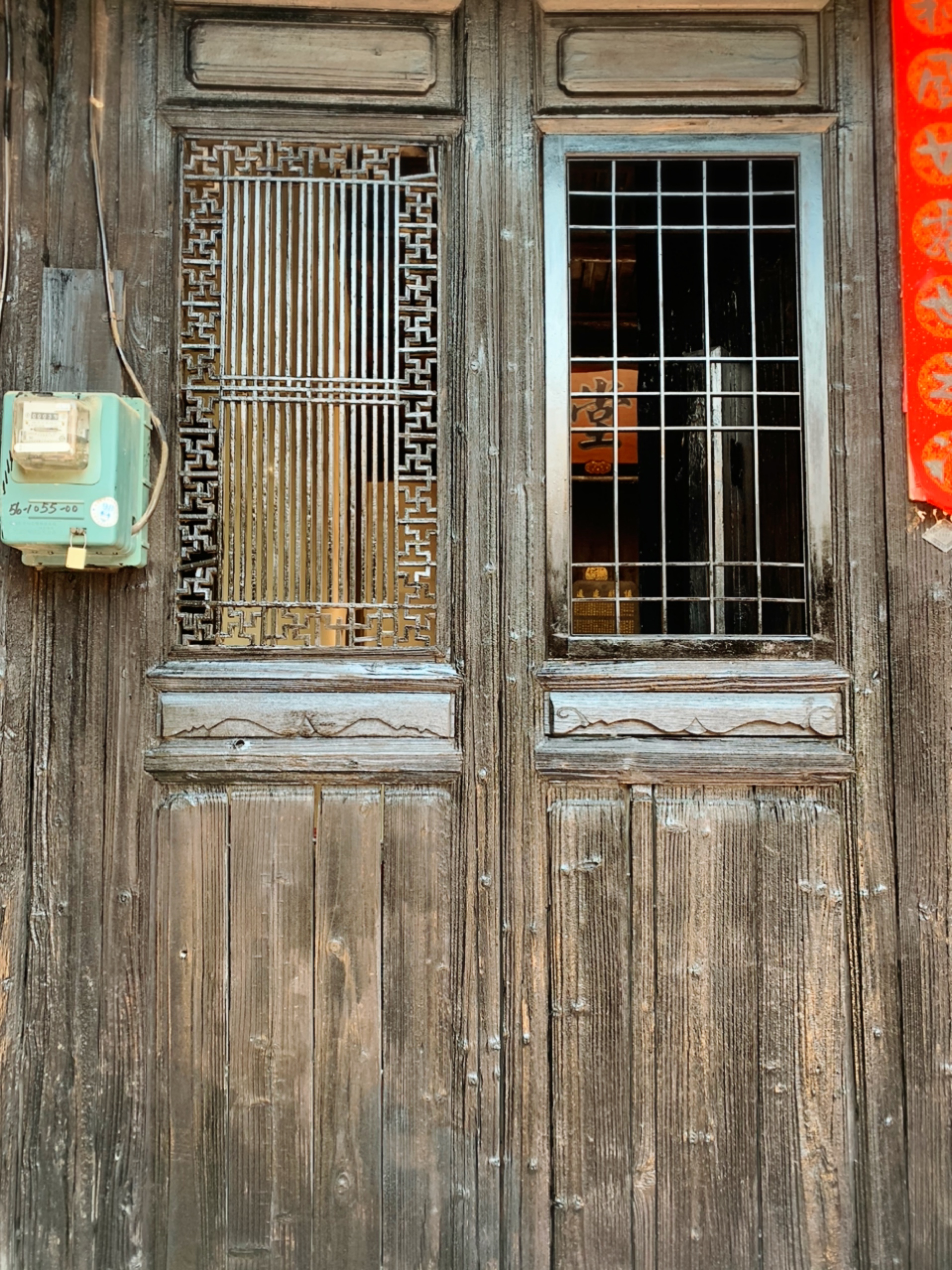
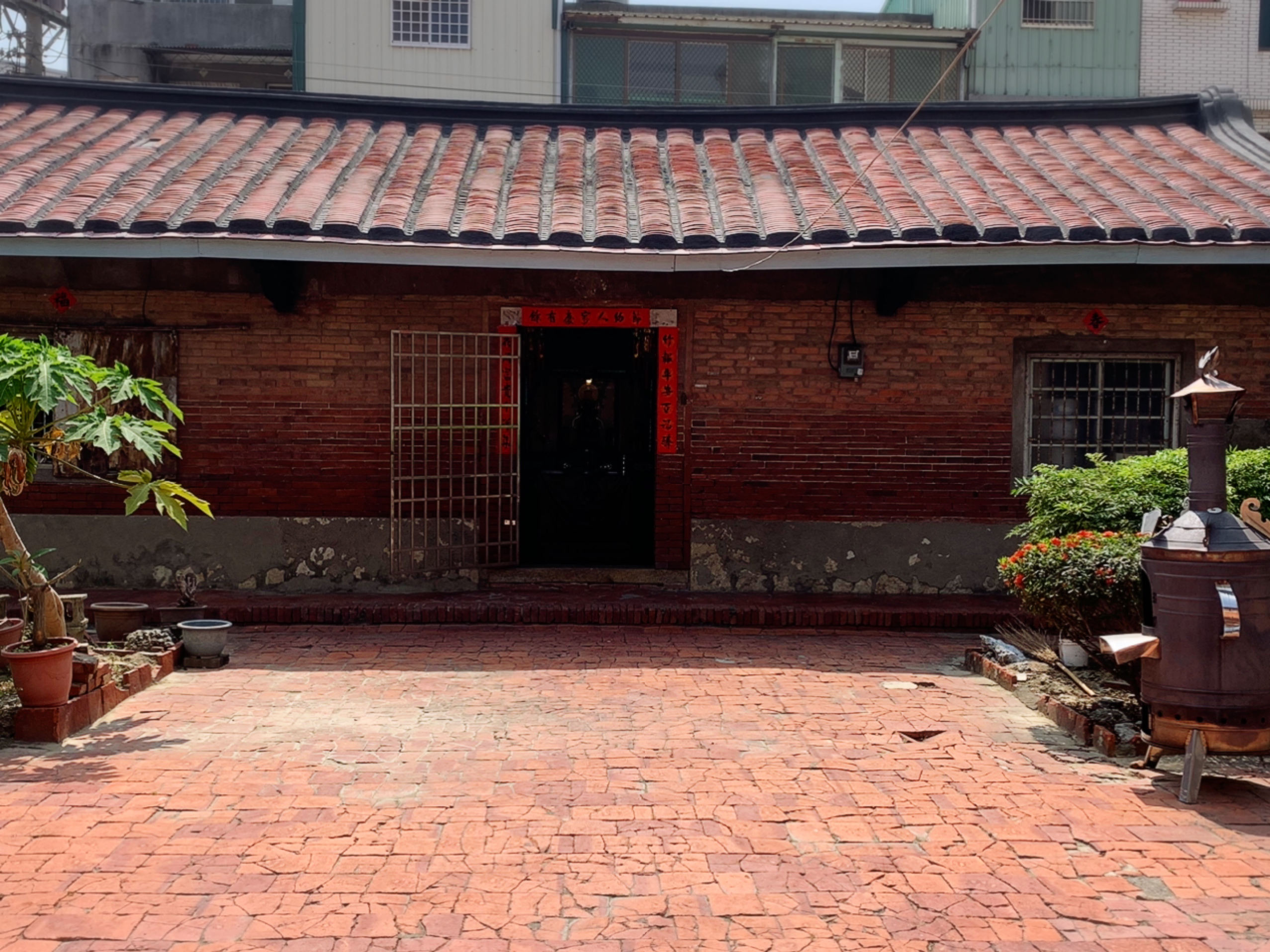

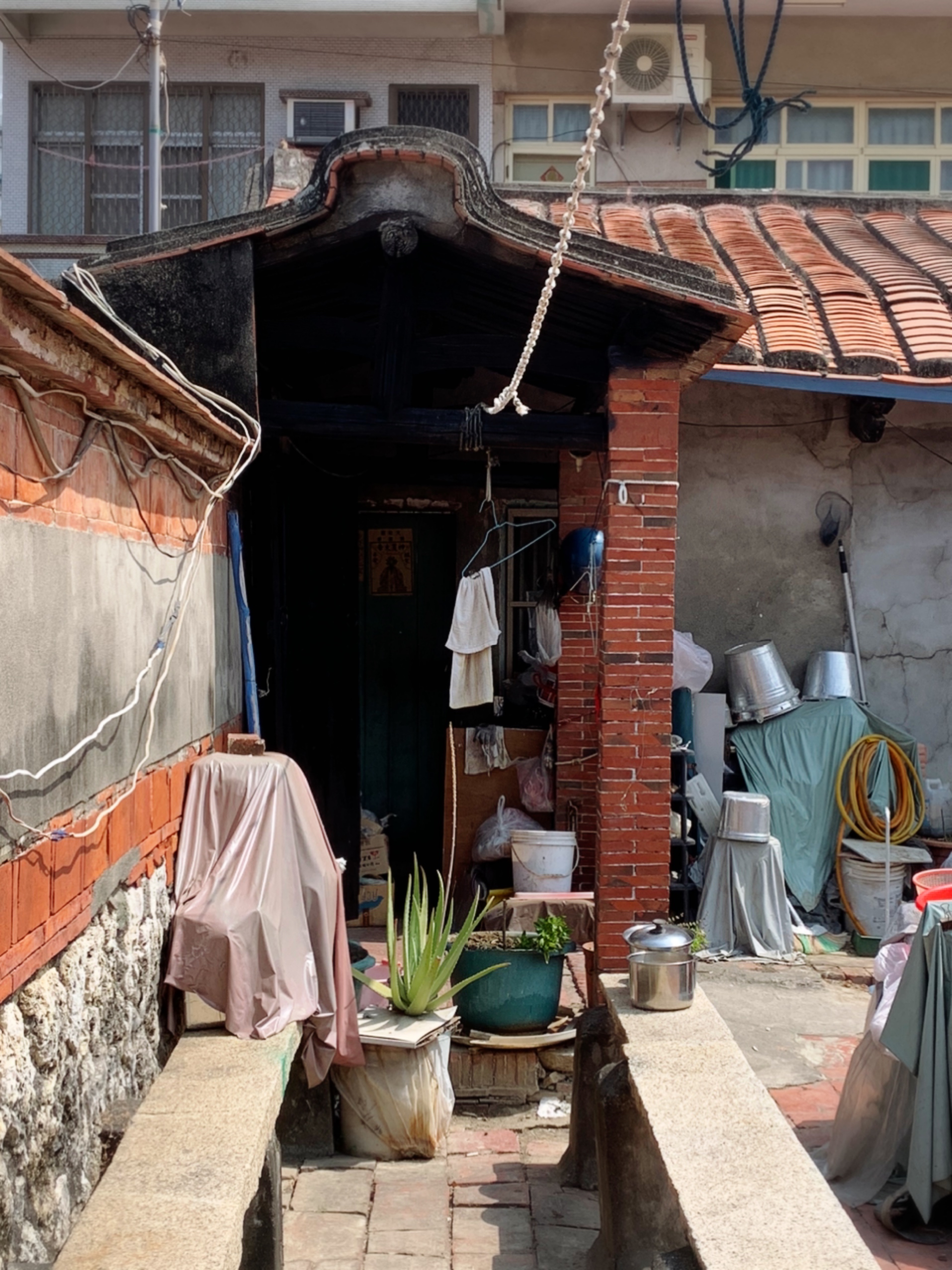




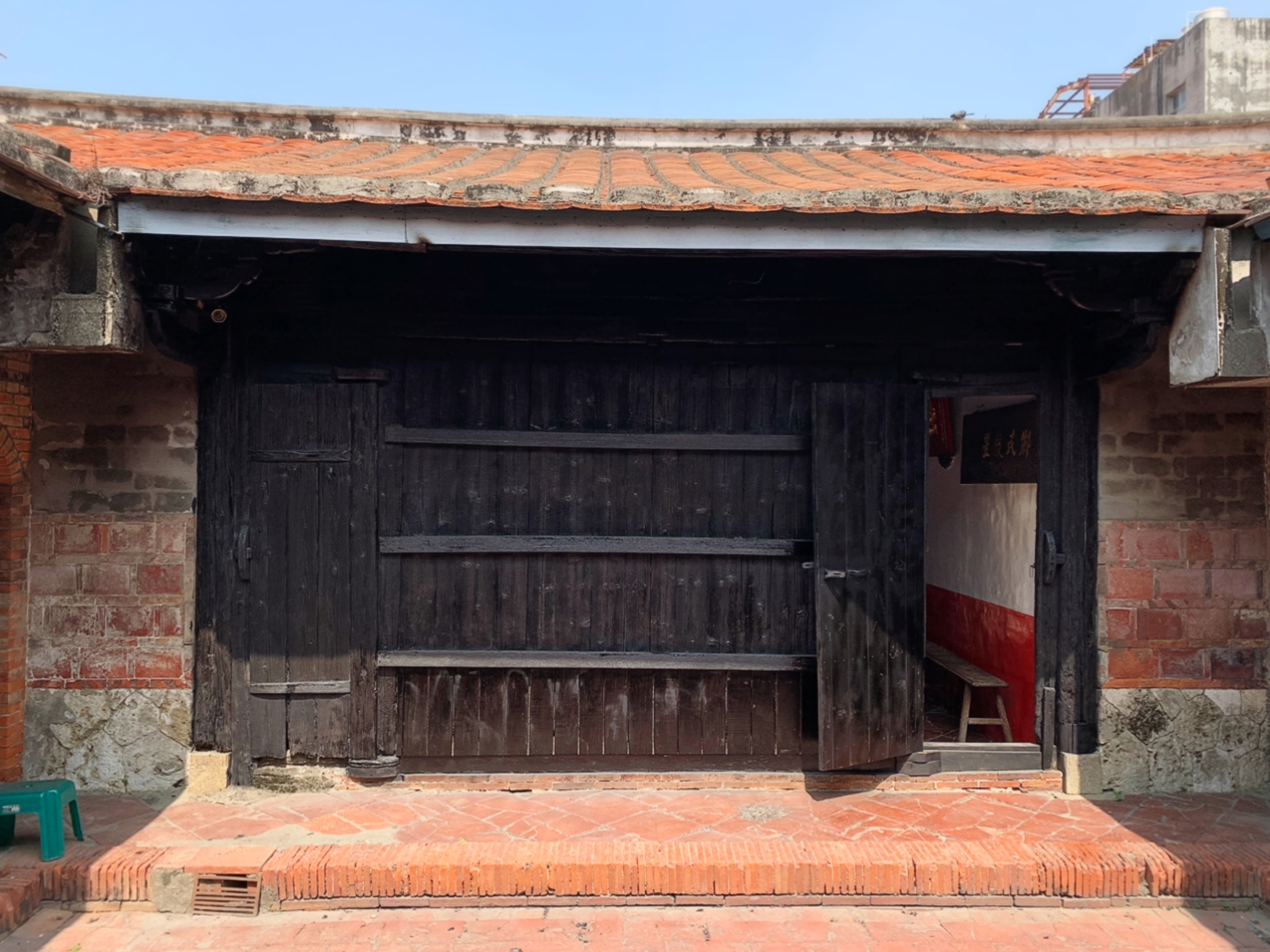
The ancestral hall is notable for its use of wood imported from Fujian, with high-quality carving work, now mostly blackened with age. It's typical of Zhangzhou-style houses because it is one.
The style of the arches and gables made me think this hall was older than most, perhaps late 18th or early 19th century (in comparison, most still-standing historic homes seem to be from the mid-19th century). I asked a guy hanging out nearby -- he may have been there in some sort of official ancestral hall capacity but as usual, it's hard to tell -- who said it was about 200 years old, and the Wu family has been in Dashe for as long as anyone can remember.
Me: "So, 1820s?"
Him: "No, earlier than that. Maybe 300 years."
So I Googled it: the hall was built in 1803.
I'm not a Qing-era architecture expert, just a very good guesser who has seen a lot of old houses.
Further down Minsheng Road, at #109, is another Wu family mansion. This one can't be visited so easily. The Wu house is a private residence, and is maintained well enough that someone certainly stays or visits part time. The gate was locked when we stopped by, but it's possible to peer in a bit through the lattices on the brick wall. These two heritage buildings are close enough that I suspect the entire stretch between them had once been the Wu family compound and farm. It might still be, but with newer -- and uglier -- buildings. 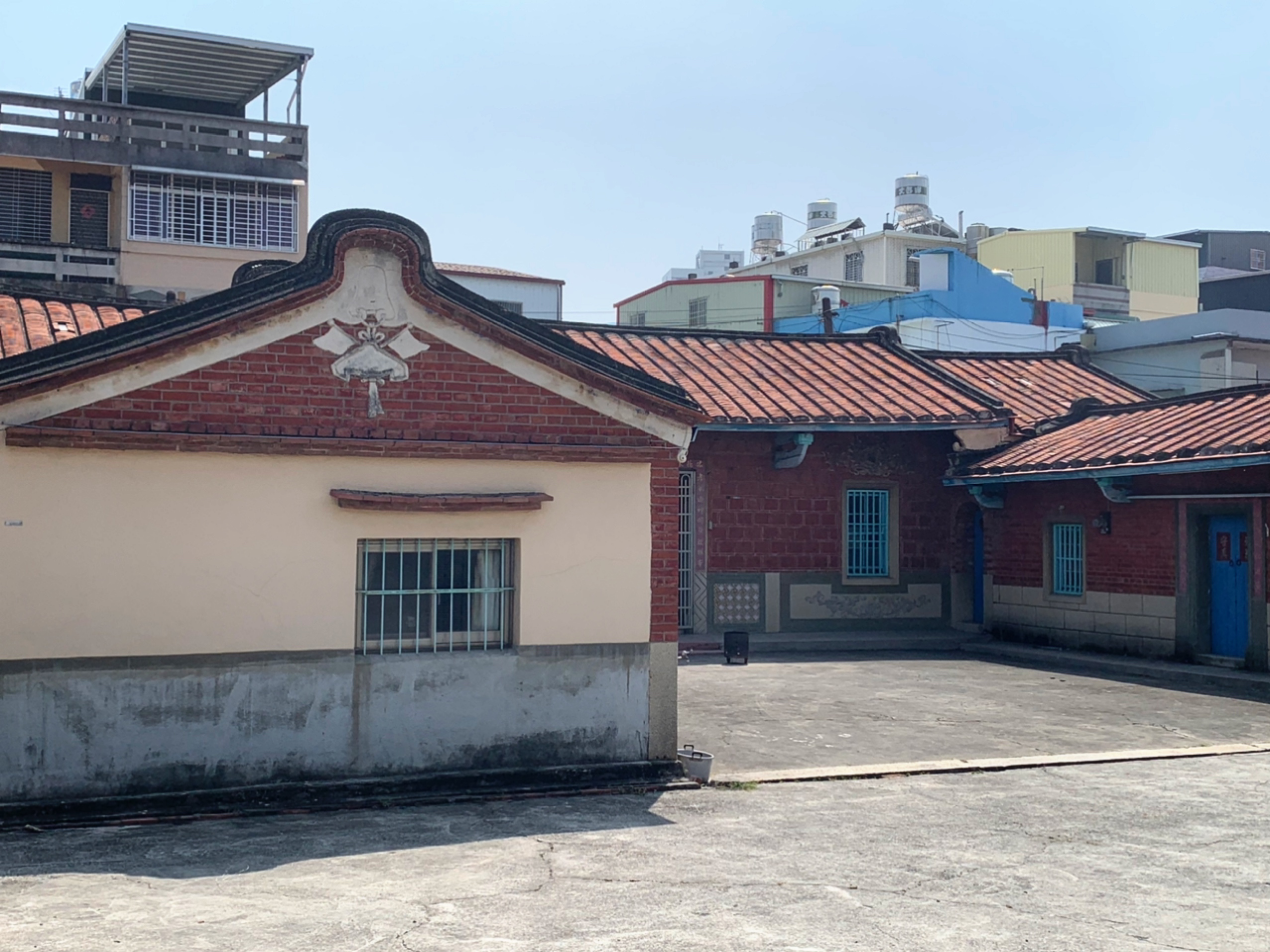
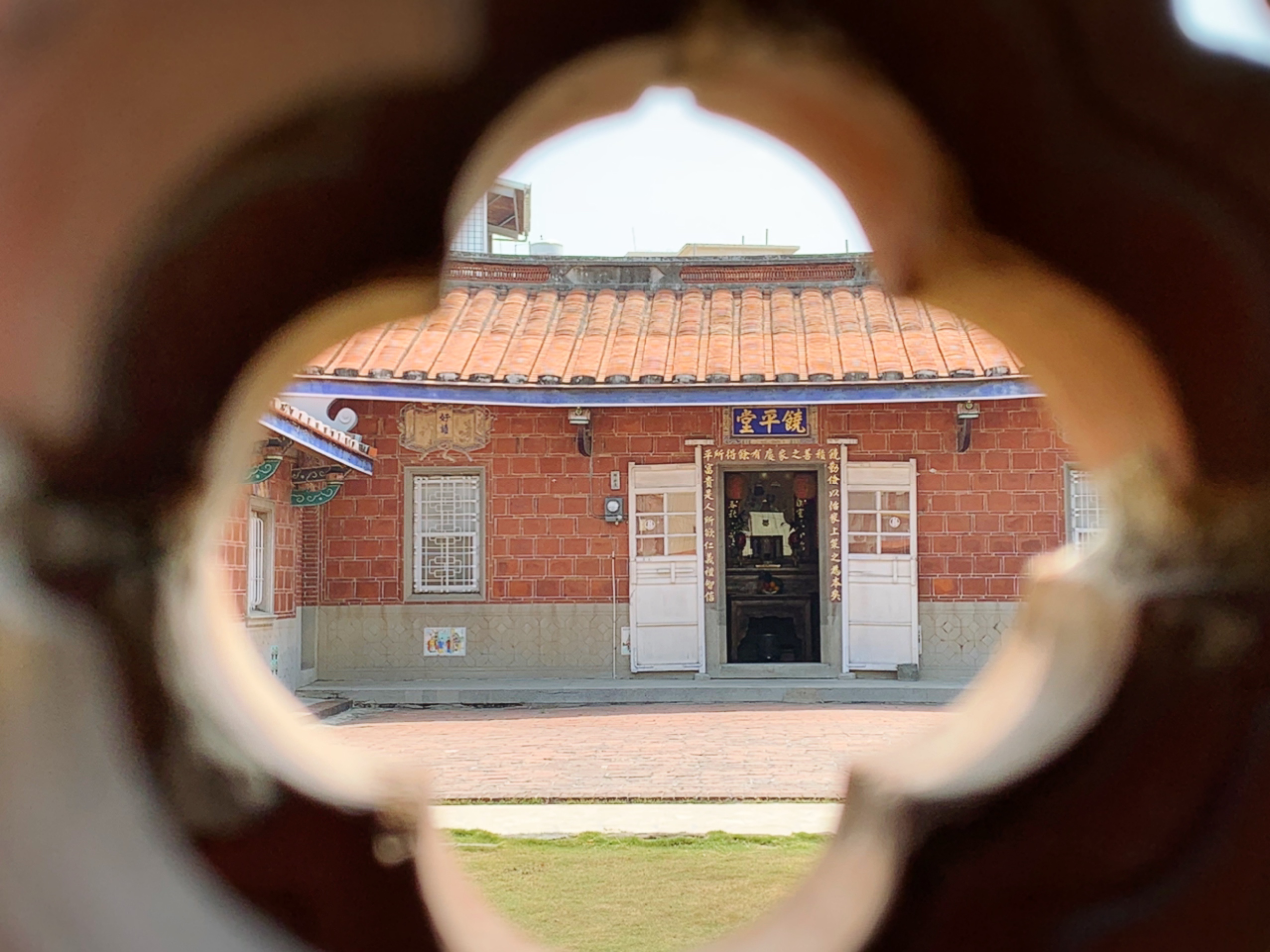
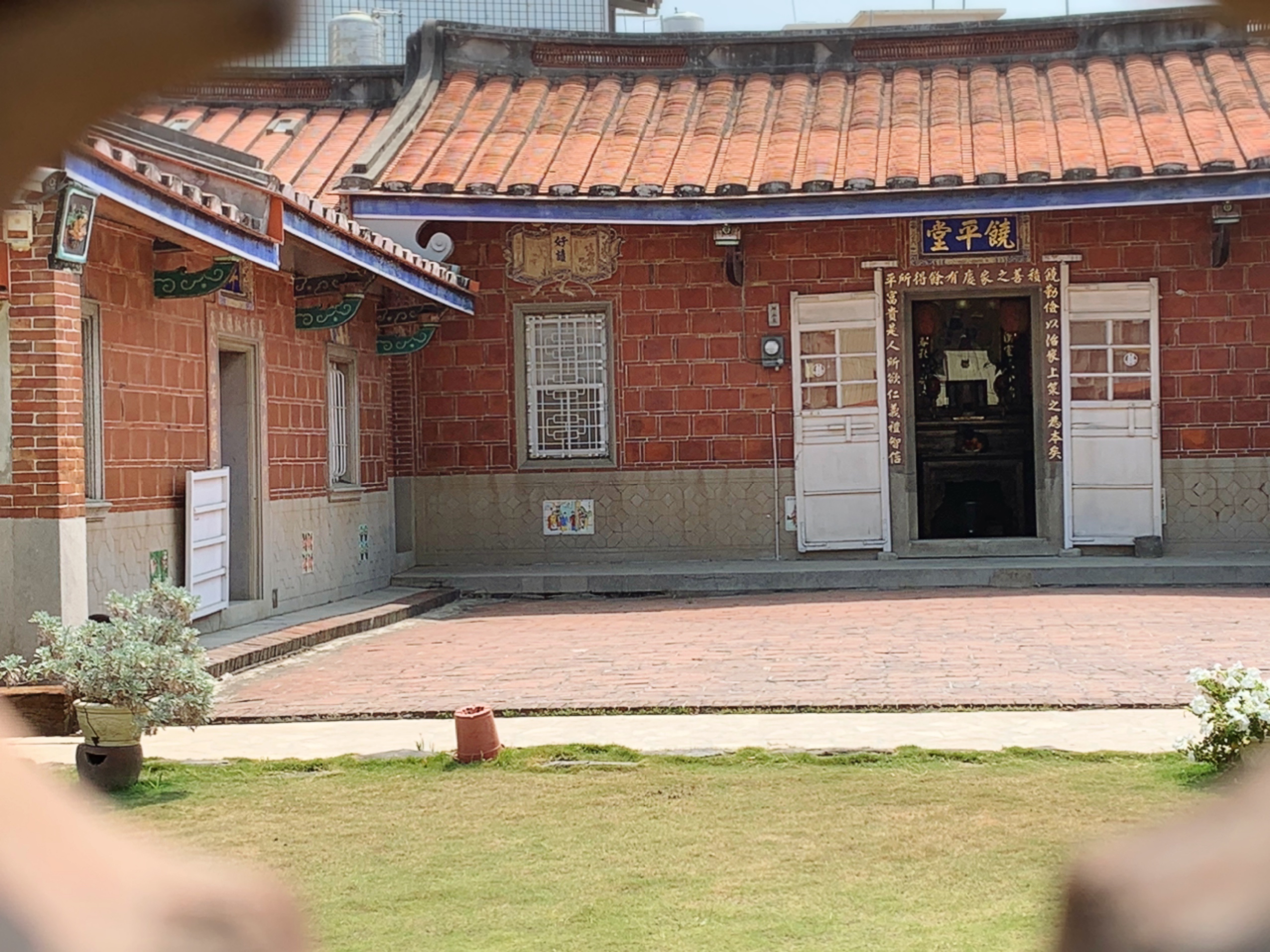
And there are a few other interesting old buildings around here in various states of picturesque decay: 
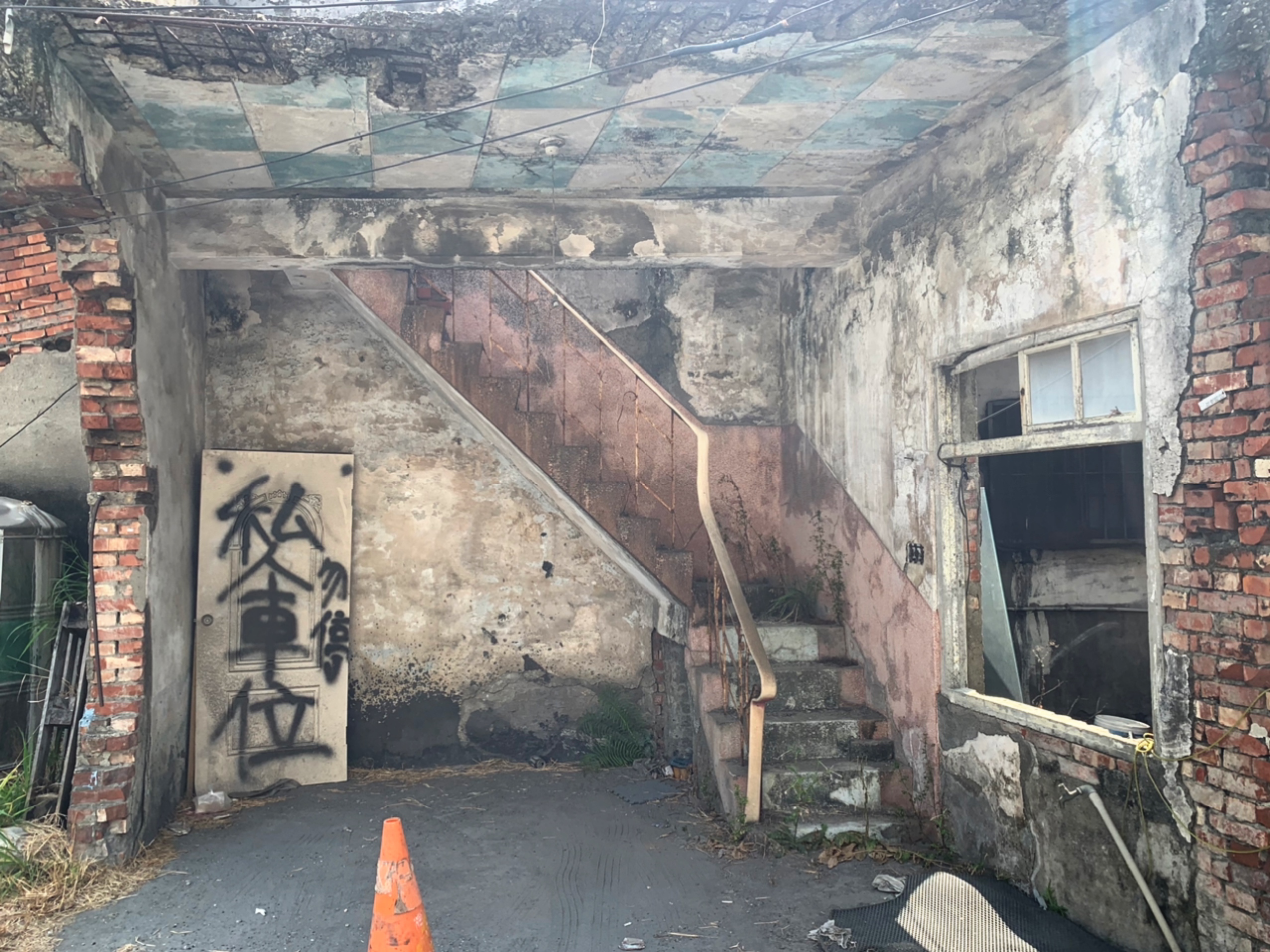
Not far from here, a few more old farmhouses can be found on or near Minsheng Road. The Ni Family House (大社倪厝古宅 on Google) is in a lane just before you reach Lane 131. Blogs say it was "completed in 1950", but that the family built it in a traditional style. That's certainly evident. The large-and-small red brick pattern. Similar to the construction style of Longshan Temple in Taipei, the bricks themselves are hollow or filled with dirt, and take on an attractive golden red color in the late afternoon. The lower half of the building is made of decorated cement in a geometric pattern, which is the only clue that this is a mid-century house rather than something much older.
If you're curious, the various roof arches one can find on older buildings are said to represent the five elements. The smooth rounded curve of the Ni Family Mansion arches apparently represents "gold". Narrower, tall arches represent "wood", an arch with two waves one each side is "water", the spiky style often seen in Matsu Island architecture is "fire" and the flat-topped kind are "earth". There are also some interesting design features, including a carved "fu" (富) over a drainage canal and an interesting patio.
How do I know all this? There's a book about it, in addition to just reading the blogs of Taiwanese old house buffs. There's always someone who's been there before if you just Google it. You can find the book at The Taiwan Store (台灣个店) in a lane off Xinsheng South Road in Taipei.
There's another set of old brick buildings nearby, as well. They're laid out in a row, and certainly not farmhouses.
A few more of these houses dot Minsheng Road as you continue, but they don't have any other notable features. It's worth taking a look, however, if you're wandering down this way. Many are still inhabited, so be careful to be respectful of private property and not trespass uninvited. An easy way to find these in general is to key up the satellite version of Google Maps and look for orange roofs laid out in the three-sided farmhouse shape, but not all will be notable enough to visit, and others may not be accessible.
Downtown, we stopped at Biyun Temple (碧雲宮) at the intersection of Sanmin Road 三民路, Guangming Street 光明街 and Cuiping Road 翠屏路. 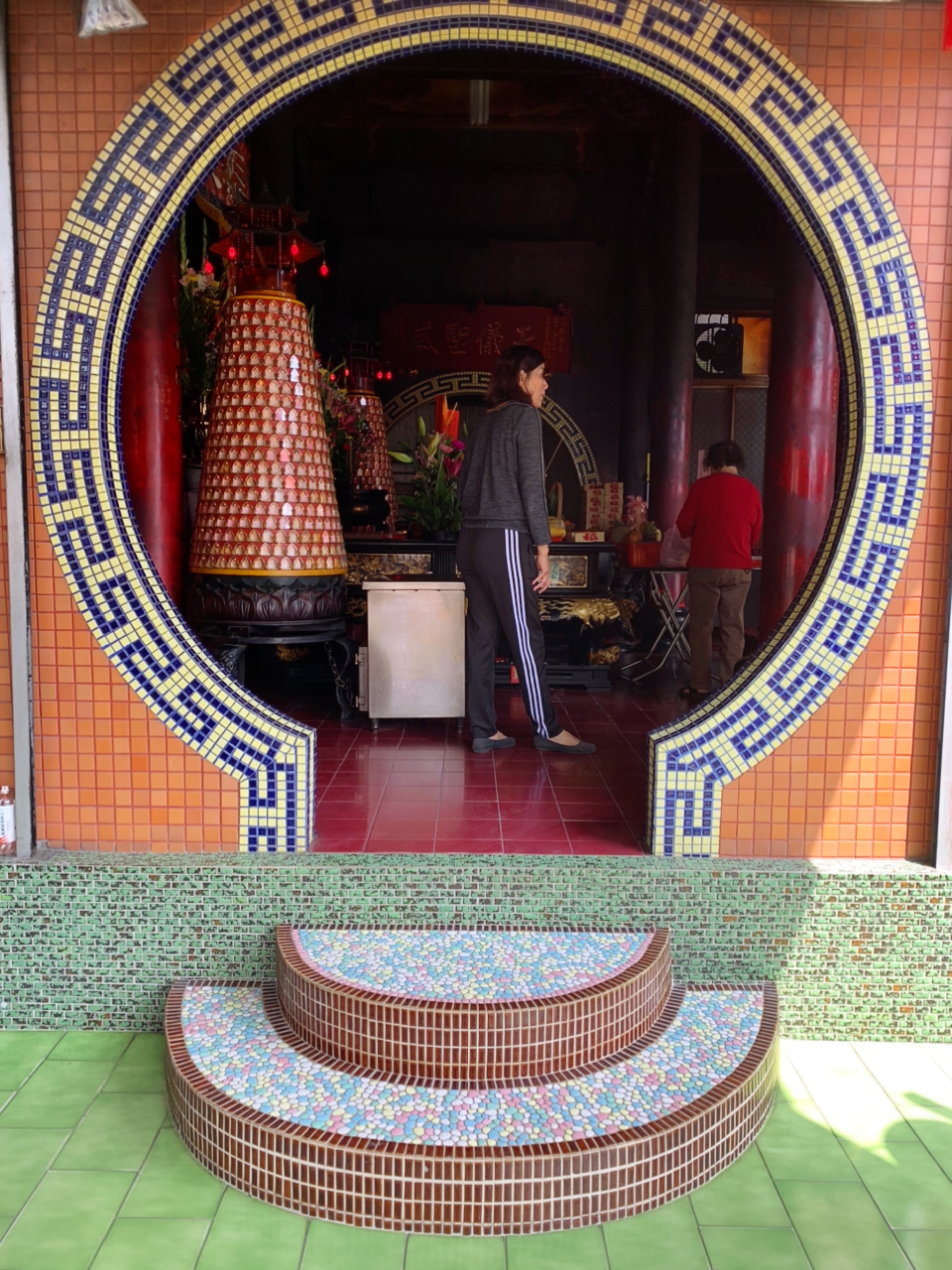
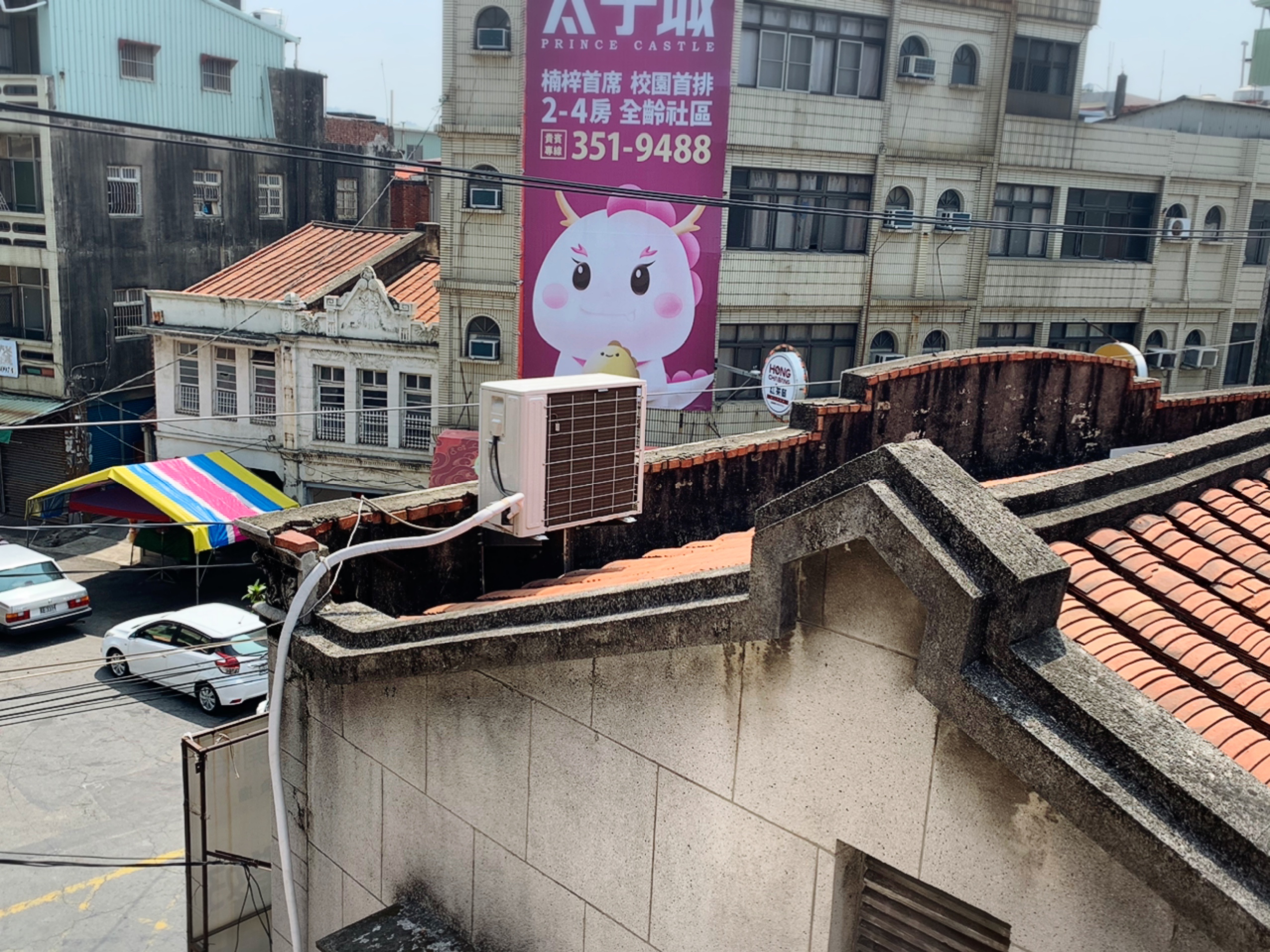

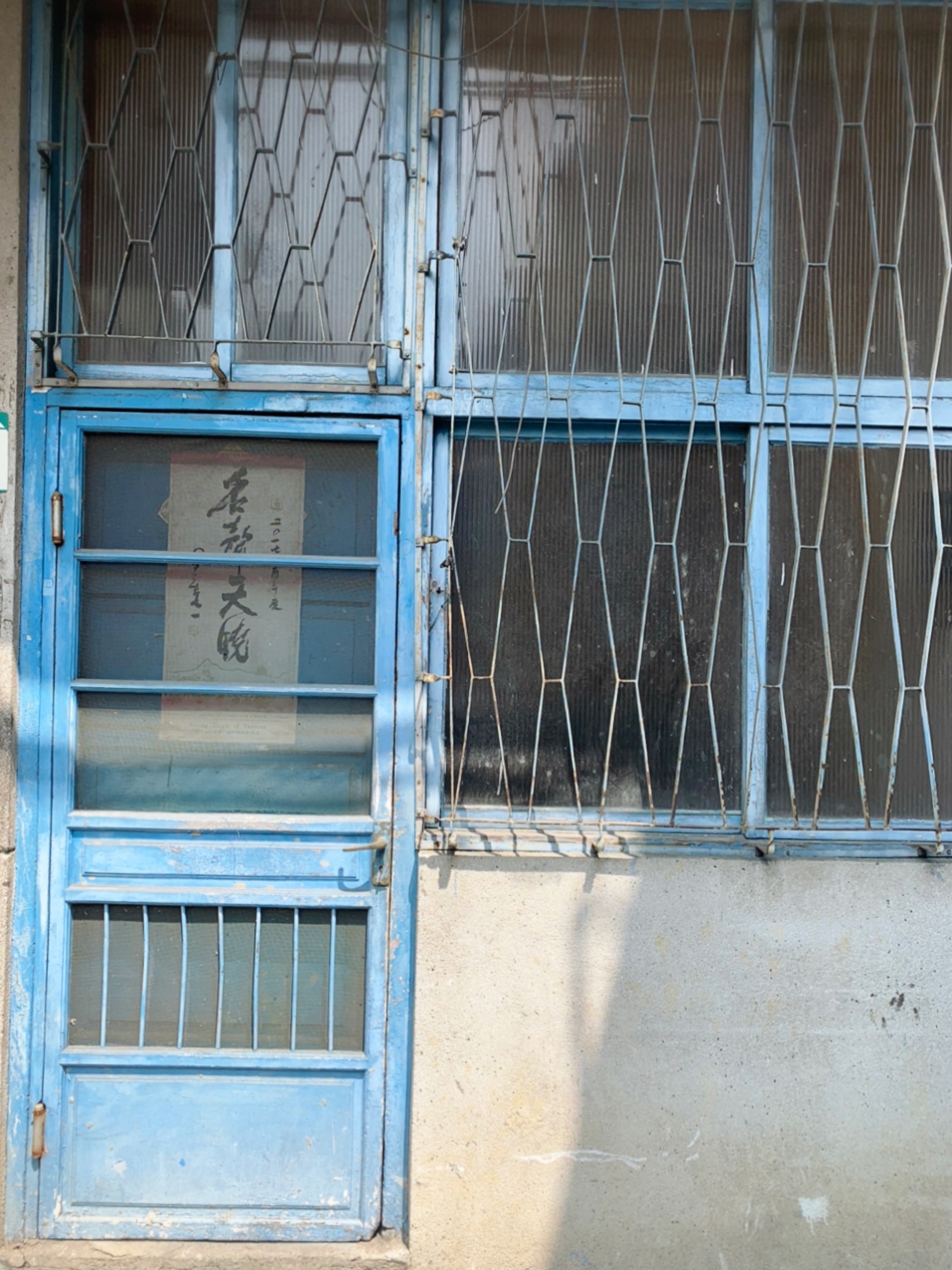
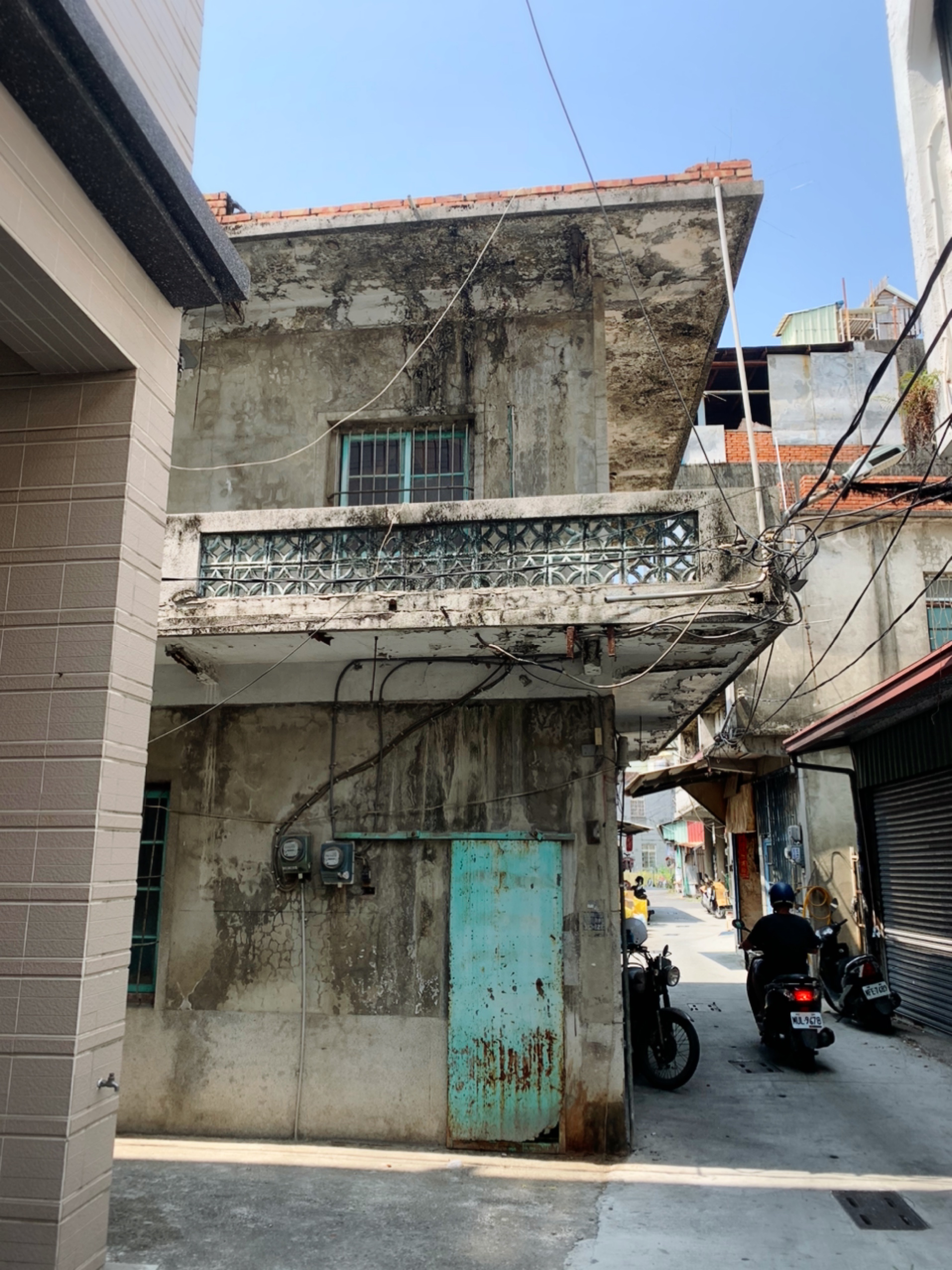

The temple itself is on the 2nd floor of a market area, accessible via elevator or stairs. The lanes around here have some interesting old architecture too.
While the decor screams "mid-century" -- I'd date the pebble-tile steps and terrazzo floors at the 1950s or '60s -- this is a renovation. According to my friend, the temple itself is much older, from the Qing dynasty. You can get a pleasant view of the street from here, including some of the Japanese-era buildings at this intersection. The temple itself isn't particularly noteworthy beyond the vintage flooring, but you can make a wish here. The wishing plaques hang attractively along an elevated corridor overlooking the town.
The Japanese-era buildings here have facades worth a moment of your time to admire, but unfortunately there are no period interiors to explore. One houses a shoe store and pharmacy: I asked the shoe store owner if she knew anything about the building, but she was merely renting the space and had nothing to share. Another building houses a fruit stand, and another was locked up tight when I passed through.
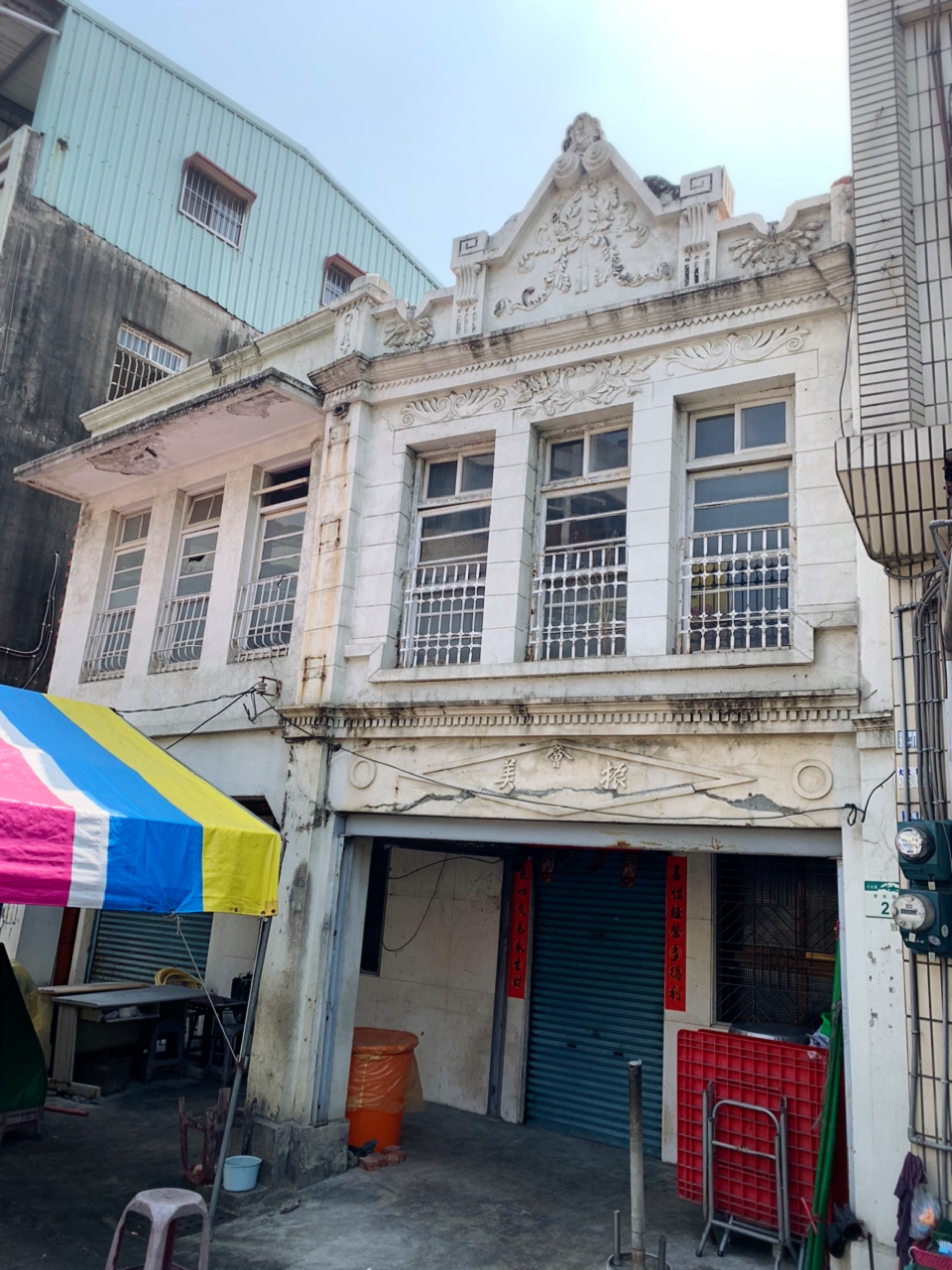

In a lane off Cuiping Road, there is a gorgeous old house that my friend called a "secret garden" because it's not visible from the street, but absolutely stunning inside. Apparently it's blocked by another building, and you have to cut across a private yard to get there. She opined that the owners might not want it "discovered", but I've got news for them: it has been.
My friend didn't know quite where it was, however, and we never did find it. I came across these blog posts later.
The Hsu Family House (許家古厝)was built in 1910 and was the home of Hsu Chuan-hsing, a director of the Dashe Peasants' Association (not sure how else to translate that). The tilework alone makes it worth doing what this blogger says is necessary: trespassing across private property. Apparently the Majolica tiles aren't the only attraction, the scrolls, brick carvings and Kochi pottery (a traditional Taiwanese art form) were all done by Chang Chiao, the father of Chang Decheng, a famous shadow puppet artist. Chang Chiao himself was a talented artist who did much of the work around Dashe, although a great deal of it has been demolished.
This blog offers a more precise address, though I can't figure out on Google Maps where exactly it's supposed to be. Next time.
Our final stop was another family shrine, this time for the Huangs. They were (and probably are) quite rich, as there's a local saying that the Huang family didn't need to pass through anyone else's land to reach Guanyin Mountain. (Guanyin Mountain itself has some lovely easy hiking trails, a weekend market, a 'chaste widow' arch and a small park at the base, and is also worth a visit.)
We didn't get to see the whole house as we really were trying to get up to the mountains, but the shrine is open to all. The house, however, has a set of flagpole stones, a preserved sedan chair, some beautiful brick carving, claywork and plaques which may be the work of Chang Chiao, and I'll be returning to try to check it out. One plaque indicates that the shrine was likely built in "the fourth year of Taisho", which would have been 1916. 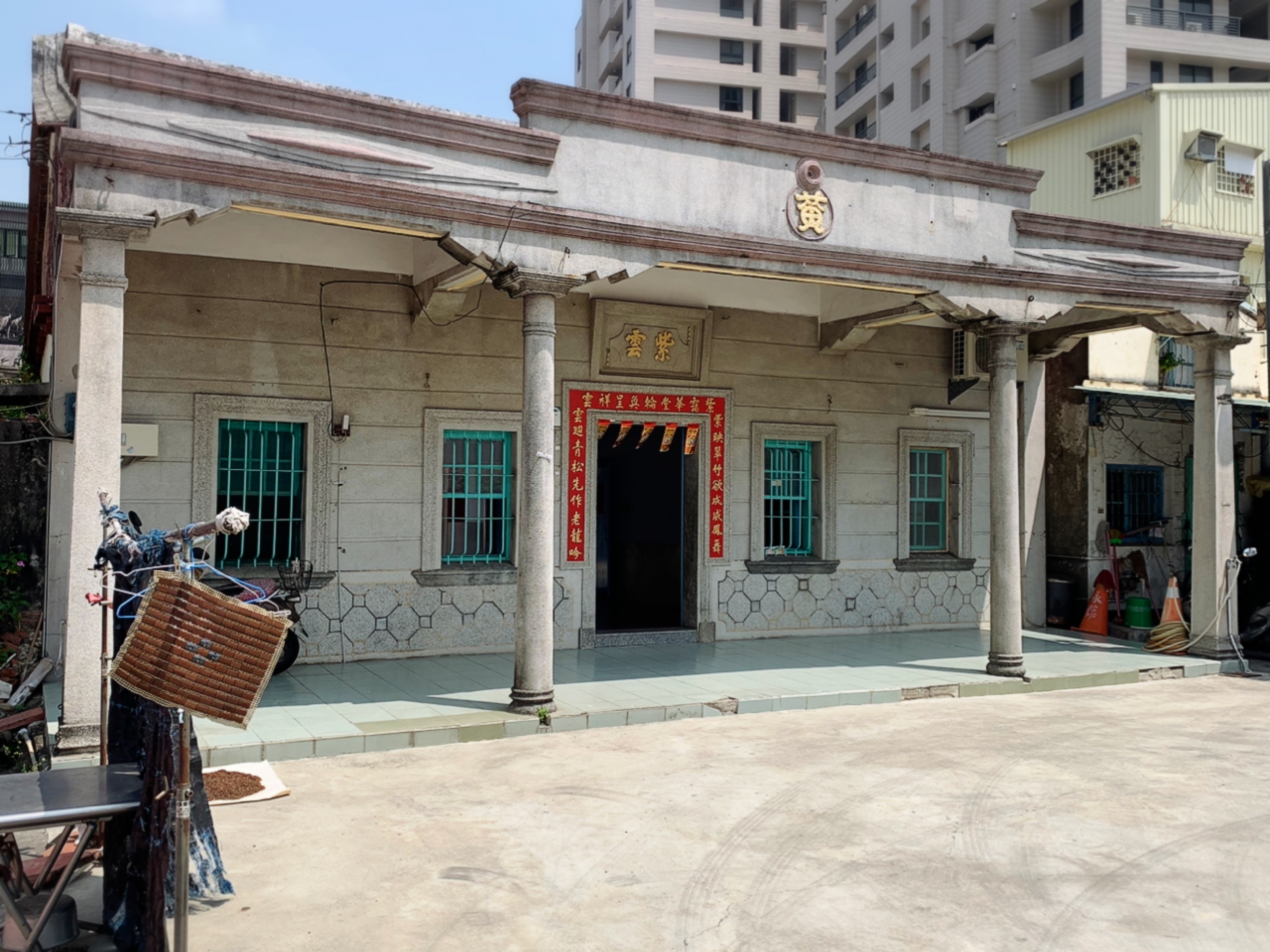



The shrine itself is mostly cement work, with some lovely cyan-colored window frames and grilles.
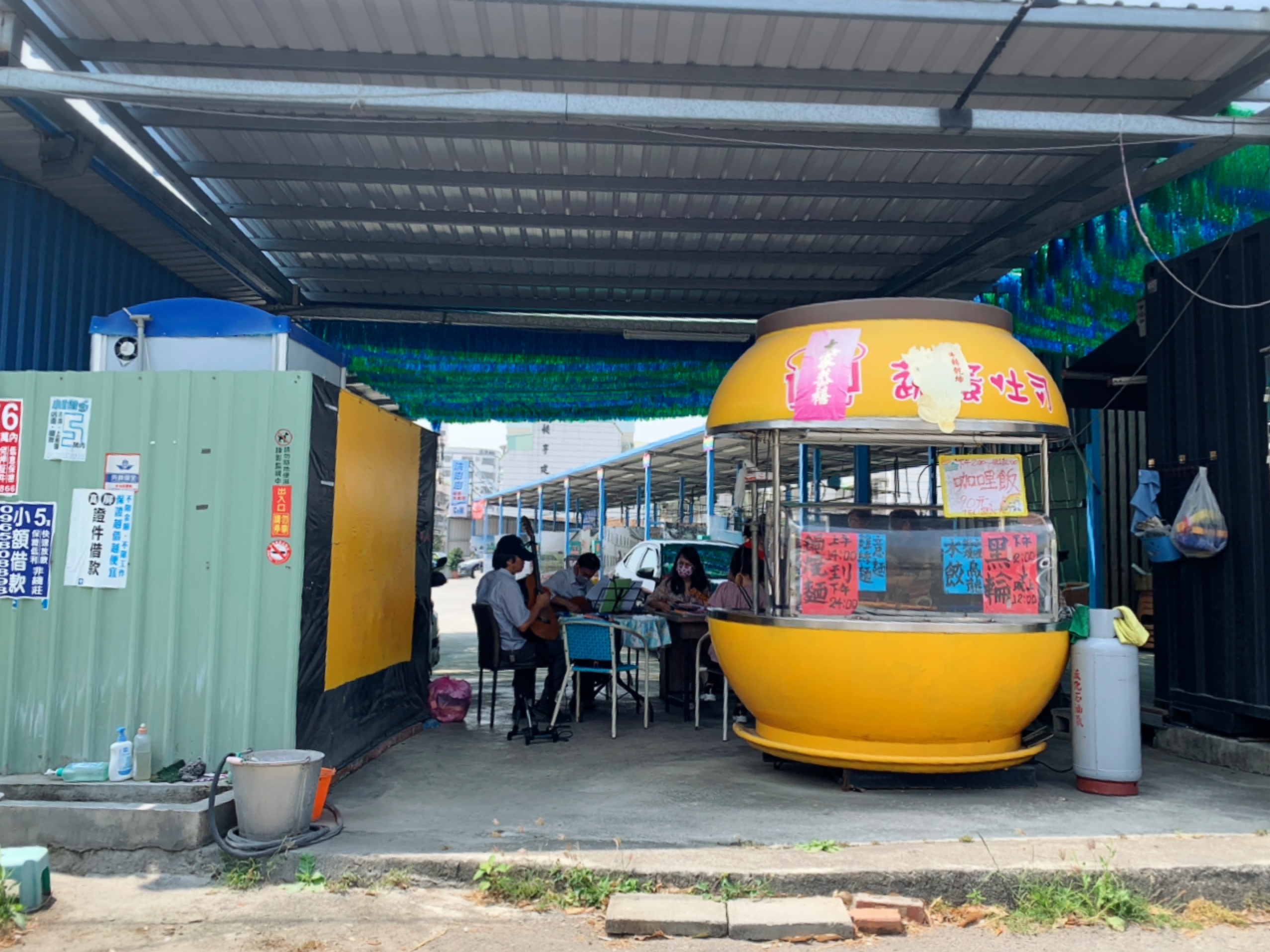
Across the street, there's a car wash with a funky retro cafe kiosk that reminds me of a hamburger.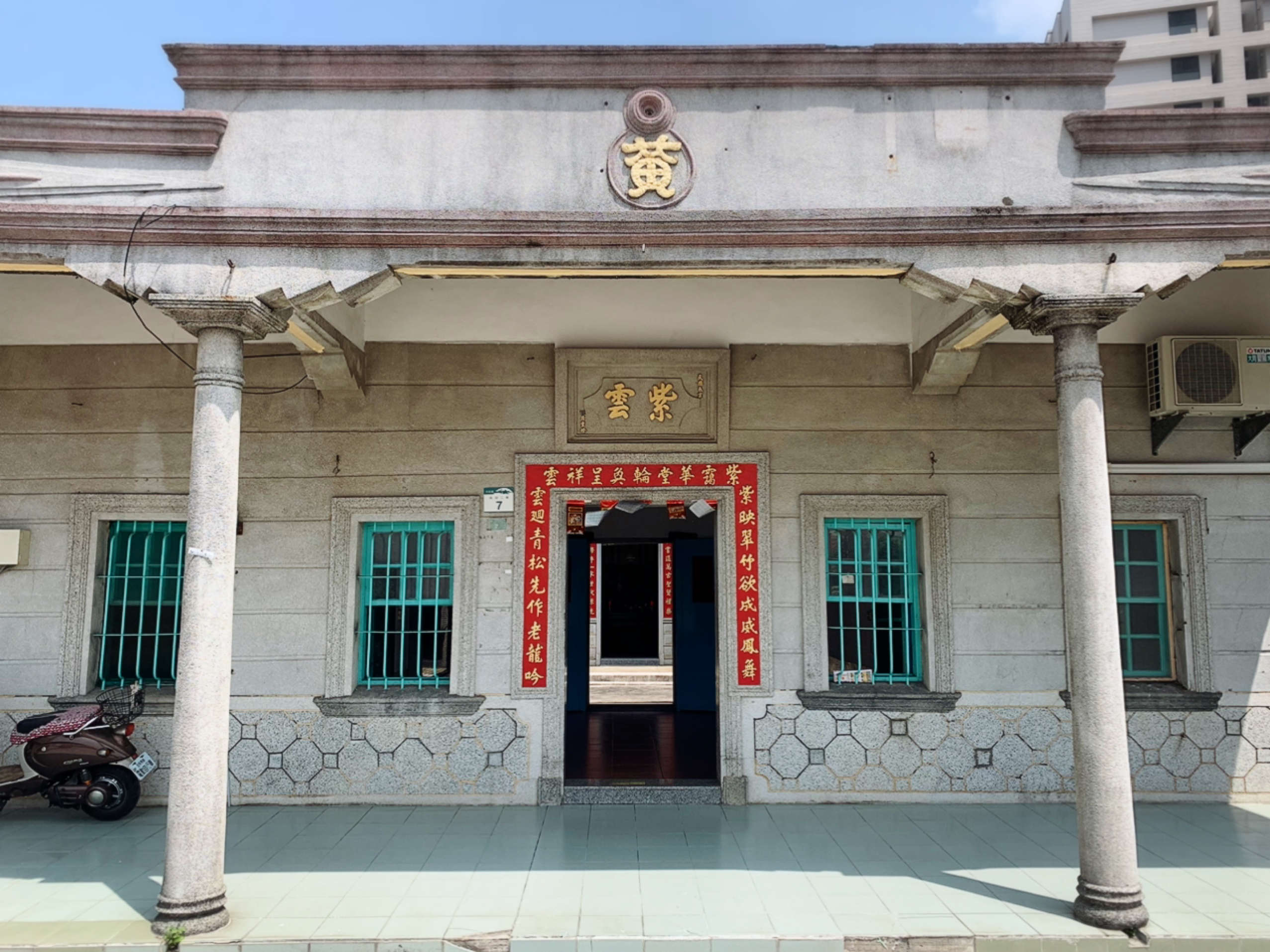


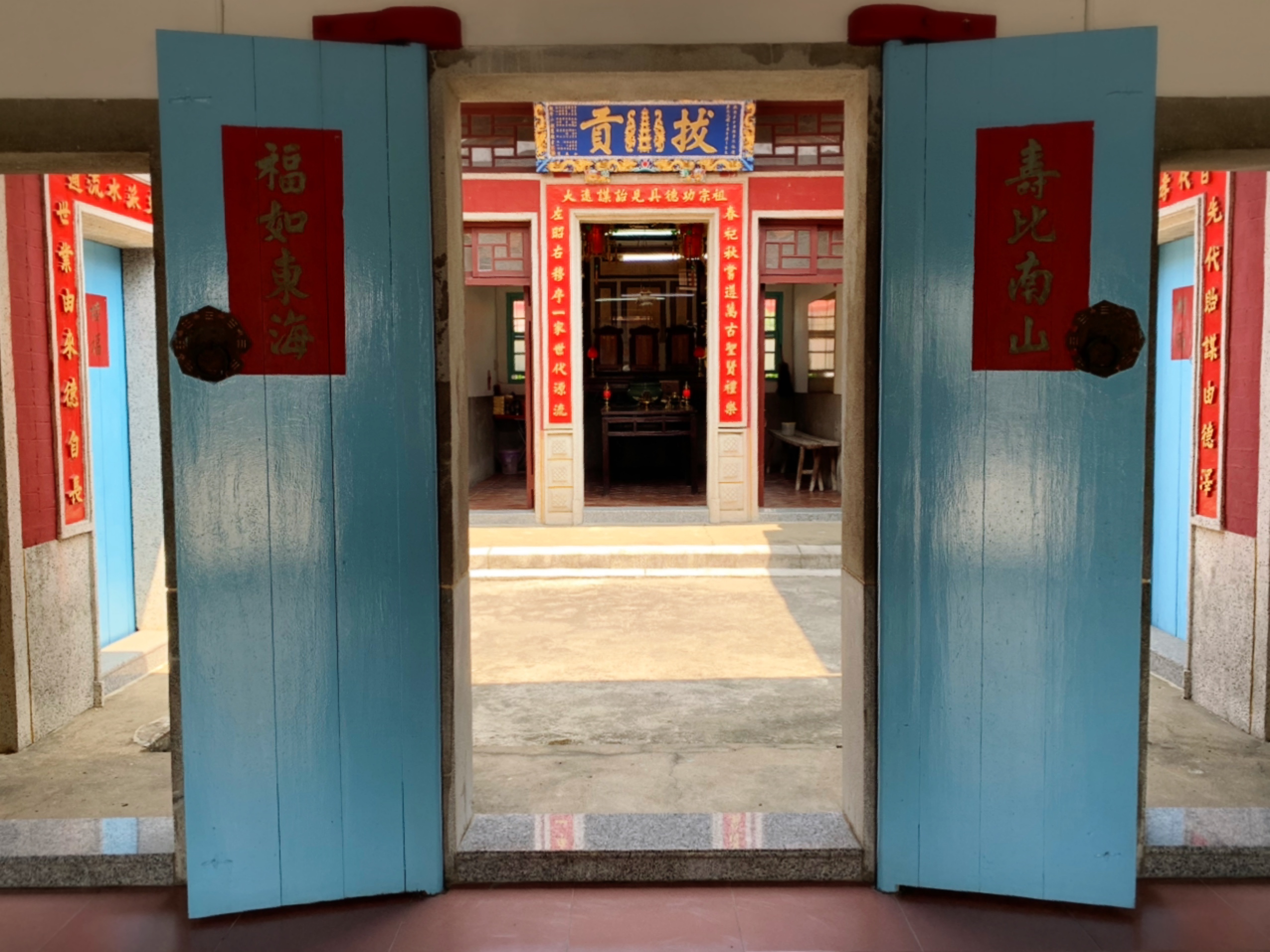
By then it was getting close to lunchtime and we hadn't even left Dashe, so we hit the road. In the end, we didn't do any hiking, not only because it was too hot by the time we hit Maolin, but because we foolishly tried to get there with Google Maps, which sent us into a dusty quarry road full of cement trucks somewhere outside of Meinong, where the river widens. We even had to stop to wash off the windshield! Once we got to Maolin and had lunch the locals laughed at us -- never use Google Maps to get to the mountains, it has no idea what the best routes are.
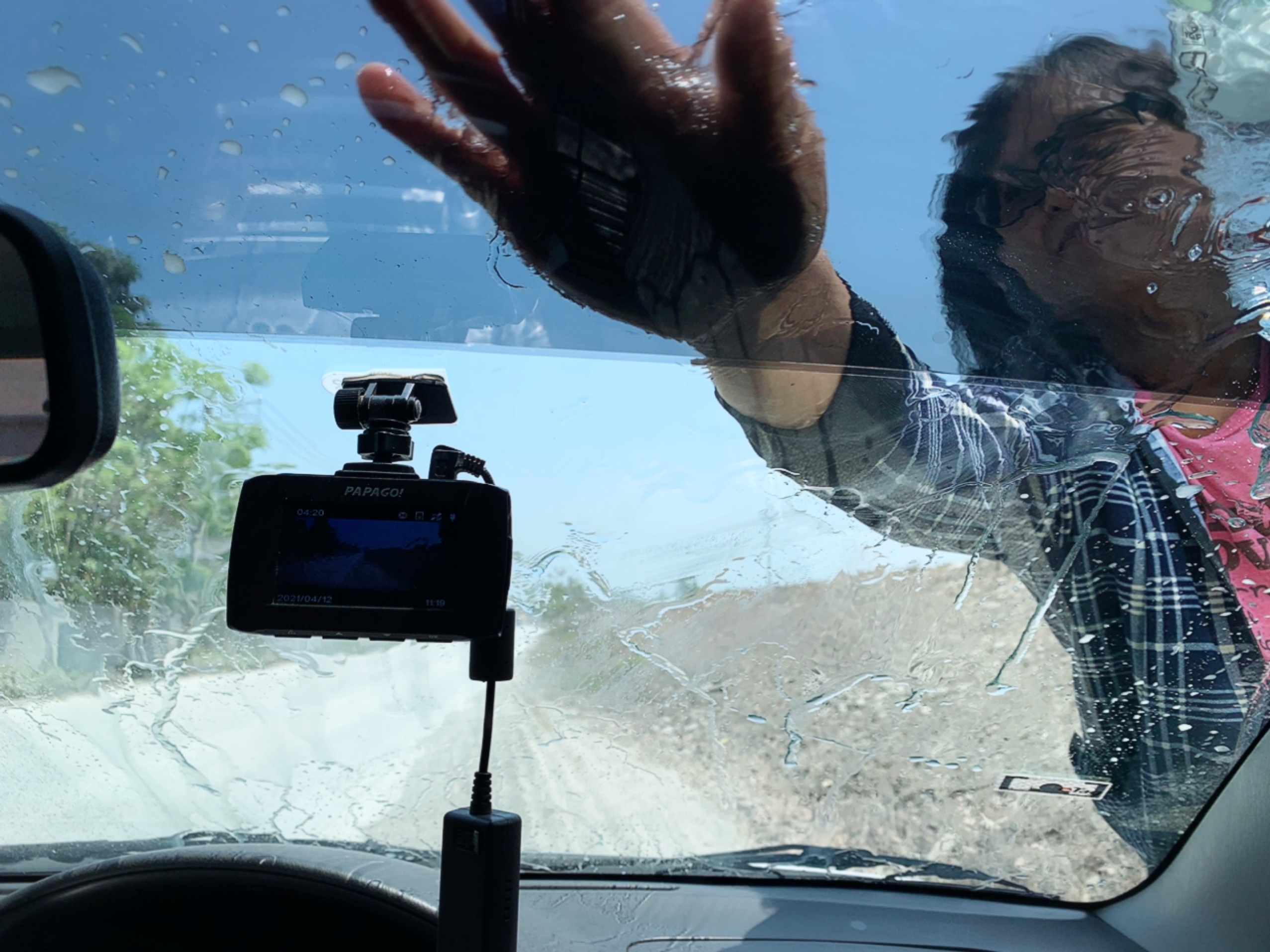
That is quite true.
However, please enjoy photos from the mountain drive we did manage to take, including the swimming hole where we hung out for awhile as the hiking just wasn't working out, and a young girl where we stopped for an early dinner who kept "stealing" things from the table, including my phone and sunglasses (not really stealing, she was just playing games).
As these were taken when Taiwan was still wracked with drought, the mountains look a little dry and sad. I'm sure they've recovered by now.




